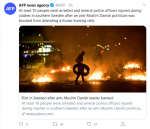You are using an out of date browser. It may not display this or other websites correctly.
You should upgrade or use an alternative browser.
You should upgrade or use an alternative browser.
INTL Europe: Politics, Economics, Military- August 2020
- Thread starter Plain Jane
- Start date
Plain Jane
Just Plain Jane

Belarus arrests opposition figures, calls in Nobel laureate after mass protests
The authorities in Belarus arrested two leading opposition figures on Monday and called a Nobel laureate in for questioning, a day after thousands of people defied the army to march demanding the downfall of president Alexander Lukashenko.
NEWS
AUGUST 24, 2020 / 10:59 AM / UPDATED 6 HOURS AGO
Belarus arrests opposition figures, calls in Nobel laureate after mass protests
Andrei Makhovsky, Andrey Ostroukh
6 MIN READ
MINSK/MOSCOW (Reuters) - The authorities in Belarus arrested two leading opposition figures on Monday and called a Nobel laureate in for questioning, a day after thousands of people defied the army to march demanding the downfall of president Alexander Lukashenko.
Two weeks after an election which his opponents say he rigged, Lukashenko has shown little sign of bringing a halt to the demonstrations, the biggest threat to his 26-year-old rule.
The president, who has called the protesters “rats”, said last week he ordered police to put down any demonstrations in Minsk. But tens of thousands took to the streets on Sunday in one of the biggest demonstrations since the election, and dispersed peacefully.
In a sign of the peril to an already shaky economy, several banking sources told Reuters most banks had effectively run out of foreign currency to meet surging demand from residents trying to sell the Belarusian rouble. Queues have become common at exchange points.
A board member at the Belarus central bank told Reuters the issue was a technical one involving the physical availability of banknotes, and did not signal liquidity problems.
A spokesman for the Coordination Council, an opposition body set up last week, told Reuters two of its highest profile members, Olga Kovalkova and Sergei Dylevsky, had been detained on Monday near a factory entrance.
Separately, Belarusian Nobel laureate author Svetlana Alexievich has been called in for questioning by state investigators over a criminal case against the Council, the spokesman said, and is due to meet them on Wednesday.
Alexievich, who won the 2015 Nobel literature prize, is a member of the Council, which was set up with the stated aim of promoting a peaceful handover of authority and comprises dozens of public figures including the former head of the main state drama theatre.
The government has launched a criminal investigation, calling the Council an illegal attempt to seize power. Many leading opposition figures are in jail or have fled the country.
“Belarus has changed and authorities will have to talk to us,” one of the council members, Maria Kolesnikova, told reporters.
CURRENCY SHORTAGE
Central bank board member Dmitry Murin told Reuters any shortage of foreign currency at exchange points “has a technical nature - there is an issue with physical availability of the banknotes. Banks do not have forex liquidity shortages as of now.”
Banking sources described what appears to be a serious shortage of hard currency despite an infusion of cash last week.
“There is panic now, demand for foreign currency cash is very high,” one currency dealer in Minsk told Reuters, speaking on condition of anonymity.
“The only bank that has (foreign) cash is Raiffeisen Bank, which sold it very actively last week. But the last plane carrying cash arrived in Belarus last Friday. Our bank and others wanted to buy foreign cash today but Raiffeisen said they have none.”
A spokesperson for Priorbank, Raiffeisen’s subsidiary in Minsk, declined to comment.
A source at a state-run Belarusian bank told Reuters his bank had received requests from customers to withdraw $2.5 million but had just $100,000 in its coffers.
Another person at a unit of a Russian bank said withdrawals had to be requested several days in advance and there was no guarantee they would be granted.
On the official market, the Belarus rouble fell around 1% against the both the euro and the dollar on Monday. Against the euro it was at a record low.
Slideshow (4 Images)
(Graphic: Belarus rouble, here)
FINANCIAL CRISIS
The currency weakness would make it costlier to service $2.5 billion in debt payments due by end-2020. The central bank had less than three months’ import cover as of end-2019, World Bank estimates show.
“It is very clear that there is a massive shortage of foreign exchange, and of course it is one of the countries that definitely already has low FX reserves,” said David Hauner, head of emerging markets cross-asset strategy for EMEA at Bank of America Global Research. “....The country does not have a lot of cushion to weather that sort of turmoil for a prolonged period.”
(Graphic: Belarus import cover, here)

The CEO of Viber Rakuten, which runs the Viber messaging service, was quoted by Interfax as saying the firm was considering halting investments in Belarus. Djamel Agaoua said employees had been moved out of Minsk to remote locations.
Belarus is the former Soviet state with the closest political, economic and cultural ties to Russia, and its territory is seen as crucial to Russia’s European defence strategy. That has left the Kremlin with a choice of whether to continue to back Lukashenko as his authority ebbs.
Foreign minister Sergei Lavrov said on Sunday Belarus protesters were seeking a Venezuela-style crisis and ‘bloodshed’ rather than peaceful resolution.
Russian President Vladimir Putin and Lukashenko spoke by phone on Monday in their third call in just 10 days, touching on the Belarus situation and agreeing that Belarusians would take part in trials of Russia’s coronavirus vaccine.
Western countries have had to balance their sympathy for a nascent pro-democracy movement with concern about provoking Moscow. U.S. Deputy Secretary of State Stephen Biegun met top opposition leader Sviatlana Tsikhanouskaya in Lithuania on Monday, and is due to discuss Belarus during a trip to Russia.
“She’s a very impressive person and I can see why she is so popular in her country,” Biegun said. “The purpose of the meeting was to listen, to hear what the thinking is by the Belarusian people, and to see what they are doing to obtain rights of self-determination.”
Reporting by Andrey Ostroukh in MOSCOW and Andrei Makhovsky in MINSK; Additional reporting by Andrey Kuzmin and Tom Balmforth in MOSCOW and Karin Strohecker in LONDON; Writing by Katya Golubkova; Editing by Sujata Rao, Peter Graff, William Maclean
Our Standards:The Thomson Reuters Trust Principles.
Plain Jane
Just Plain Jane
Notice how these reports are coming out as soon as President Trump arranged to have post convalescent plasma as a treatment.

 www.dw.com
www.dw.com
Coronavirus reinfections confirmed in the Netherlands, Belgium
Individuals in Belgium and the Netherlands have been re-infected with the coronavirus, Dutch media have reported. Some experts believe it is a good sign.
A patient in the Netherlands and another in Belgium have been re-infected with the coronavirus, Dutch media reported Tuesday, following reports that scientists in Hong Kong had confirmed the first known re-infection.
The Dutch patient was an older person with a weakened immune system, Dutch broadcaster NOS reported, citing virologist Marion Koopmans.
Koopsmans said it was more common for people to remain infected with the virus for a long time, but with mild symptoms, before it suddenly flares up again. A reinfection — as is the case with the Dutch and Belgian cases — requires genetic testing in both the first and second instances of infection to see whether there are differences in the virus present, Koopmans said.
That someone would pop up with a reinfection, it doesn’t make me nervous," she said. "We have to see whether it happens often."
Belgian case 'not good news'
The Belgian patient displayed only mild symptoms, NOS reported, citing virologist Marc Van Ranst. "It’s not good news," Ranst said.
Read more: Germany's coronavirus challenges in the 'second wave'
The development shows that the antibodies the patient developed in the first case were not strong enough to fend off an infection from a slightly different variant of the virus, he said.
It is not clear if this is a rare phenomenon or if there are "many more people who could have a reinfection after six or seven months," he said.
First re-infection confirmed in Hong Kong
The European developments follow Monday reports of the first confirmed coronavirus re-infection, a man in Hong Kong.
The 33-year-old, who was infected with the virus in March, returned in mid-August from a trip to Spain infected with a different strain.
Read more: Germany mulls end to mandatory tests for high-risk returnees
"COVID-19 patients should not assume after they recover that they won't get infected again," said Dr. Kelvin Kai-Wang To, a microbiologist at the University of Hong Kong.
"It shows that some people do not have lifelong immunity" to the virus even if they’ve already been infected, To said.
Some experts see the news as a positive development. "If there is a reinfection, it suggests the possibility there was residual immunity ... that helped protect the patient'' from getting sick again, said Dr. Jesse Goodman, a former U.S. Food and Drug Administration chief scientist, now at Georgetown University, responding to the Hong Kong case.
Read more: Spain's tourism industry is in deep trouble
The Hong Kong patient did not display any symptoms during his most recent infection.
Implications for vaccine development
The possibility of re-infection has implications for the global race to develop a vaccine and for key decisions on when people return to school and work.
Speaking on the Hong Kong case, London School of Hygiene and Tropical Medicine microbiologist Brendan Wren said the case was "a very rare example of re-infection and it should not negate the global drive to develop COVID-19 vaccines."
kp/rc (AFP, AP, Reuters)

European patients reinfected with coronavirus – DW – 08/25/2020
Individuals in Belgium and the Netherlands have been reinfected with the coronavirus, Dutch media have reported. Some experts believe it is a good sign.
Coronavirus reinfections confirmed in the Netherlands, Belgium
Individuals in Belgium and the Netherlands have been re-infected with the coronavirus, Dutch media have reported. Some experts believe it is a good sign.

A patient in the Netherlands and another in Belgium have been re-infected with the coronavirus, Dutch media reported Tuesday, following reports that scientists in Hong Kong had confirmed the first known re-infection.
The Dutch patient was an older person with a weakened immune system, Dutch broadcaster NOS reported, citing virologist Marion Koopmans.
Koopsmans said it was more common for people to remain infected with the virus for a long time, but with mild symptoms, before it suddenly flares up again. A reinfection — as is the case with the Dutch and Belgian cases — requires genetic testing in both the first and second instances of infection to see whether there are differences in the virus present, Koopmans said.
That someone would pop up with a reinfection, it doesn’t make me nervous," she said. "We have to see whether it happens often."
Belgian case 'not good news'
The Belgian patient displayed only mild symptoms, NOS reported, citing virologist Marc Van Ranst. "It’s not good news," Ranst said.
Read more: Germany's coronavirus challenges in the 'second wave'
The development shows that the antibodies the patient developed in the first case were not strong enough to fend off an infection from a slightly different variant of the virus, he said.
It is not clear if this is a rare phenomenon or if there are "many more people who could have a reinfection after six or seven months," he said.
First re-infection confirmed in Hong Kong
The European developments follow Monday reports of the first confirmed coronavirus re-infection, a man in Hong Kong.
The 33-year-old, who was infected with the virus in March, returned in mid-August from a trip to Spain infected with a different strain.
Read more: Germany mulls end to mandatory tests for high-risk returnees
"COVID-19 patients should not assume after they recover that they won't get infected again," said Dr. Kelvin Kai-Wang To, a microbiologist at the University of Hong Kong.
"It shows that some people do not have lifelong immunity" to the virus even if they’ve already been infected, To said.
Some experts see the news as a positive development. "If there is a reinfection, it suggests the possibility there was residual immunity ... that helped protect the patient'' from getting sick again, said Dr. Jesse Goodman, a former U.S. Food and Drug Administration chief scientist, now at Georgetown University, responding to the Hong Kong case.
Read more: Spain's tourism industry is in deep trouble
The Hong Kong patient did not display any symptoms during his most recent infection.
Implications for vaccine development
The possibility of re-infection has implications for the global race to develop a vaccine and for key decisions on when people return to school and work.
Speaking on the Hong Kong case, London School of Hygiene and Tropical Medicine microbiologist Brendan Wren said the case was "a very rare example of re-infection and it should not negate the global drive to develop COVID-19 vaccines."
kp/rc (AFP, AP, Reuters)
northern watch
TB Fanatic
northern watch
TB Fanatic
Sweden steps up its defense activities in Baltic Sea region
Sweden is stepping up its defense activities in the Baltic Sea due to “a deteriorating security situation” as Russia and NATO conduct military operations in the area
By DAVID KEYTON Associated Press
25 August 2020
STOCKHOLM -- Sweden is stepping up its defense activities in the Baltic Sea region due to what a high-ranking official called “a deteriorating security situation" as Russia and NATO conduct military operations in the area.
The Swedish armed forces said Tuesday that they initiated a “high-readiness action” in the southeastern and southern Baltic Sea due to the “current, extensive military activity” in the region. Sweden is not a member of NATO.
The armed forces gave no details about the deployment but said the goal “is to strengthen maritime surveillance in the Baltic Sea at sea and from the air."
The Baltic News Service reported Tuesday that four Russian naval ships were detected near Latvian territorial waters. Two frigates from a multinational NATO maritime force were to visit the Lithuanian port of Klaipeda, the news service reported Monday.
“Extensive military operations are underway in the Baltic Sea region, both from Russia and the West, in a way that in some parts has not been experienced since the days of the Cold War,” Chief of Joint Operations Vice Adm. Jan Thornqvist said.
In a statement, he said it was the Swedish armed forces' assessment “that the risk of a military attack on Sweden is currently low, but the unpredictable security situation in our immediate area places high demands on our accessibility and preparedness.”
“We follow, we adapt, and we choose methods in our way of meeting the world around us,” Thornqvist said.
“The corona pandemic has also led to increased global concern and uncertainty. Overall, the situation is more unstable, more conflict-ridden and more difficult to predict. The current developments in Belarus remind us of this,” he added.
The military deployment “is a way of sending the signal, both to our partners and to the Russian side, that we stand up for Swedish integrity and sovereignty,” Defense Minister Peter Hultqvist told Sweden's news agency TT.
Sweden’s external military intelligence service said in March that the security policy situation in the region “has deteriorated over time,” meaning there is “an increased risk of military incidents and confrontation that can, in the worst case, lead to a situation escalating.”
The Military Intelligence and Security Service, known by its Swedish acronym MUST, said “the dynamics between the United States, China, Russia and the European Union (...) affects the security policy situation in the Baltic Sea region.”
In December 2017, Sweden decided to establish the nation’s first new military regiment since World War II — a unit of 350 soldiers based on the strategically important Baltic Sea island of Gotland.
The permanent unit was deployed during 2018 to the island’s main town, Visby. The infantry regiment there was dismantled in 2005.
Across the Baltic Sea, Estonia’s foreign intelligence agency has said that the likelihood of a military attack from neighboring Russia remains low.
————
Jari Tanner in Helsinki, Finland, and Jan M. Olsen in Copenhagen, Denmark, contributed to this report.
 abcnews.go.com
abcnews.go.com
Sweden is stepping up its defense activities in the Baltic Sea due to “a deteriorating security situation” as Russia and NATO conduct military operations in the area
By DAVID KEYTON Associated Press
25 August 2020
STOCKHOLM -- Sweden is stepping up its defense activities in the Baltic Sea region due to what a high-ranking official called “a deteriorating security situation" as Russia and NATO conduct military operations in the area.
The Swedish armed forces said Tuesday that they initiated a “high-readiness action” in the southeastern and southern Baltic Sea due to the “current, extensive military activity” in the region. Sweden is not a member of NATO.
The armed forces gave no details about the deployment but said the goal “is to strengthen maritime surveillance in the Baltic Sea at sea and from the air."
The Baltic News Service reported Tuesday that four Russian naval ships were detected near Latvian territorial waters. Two frigates from a multinational NATO maritime force were to visit the Lithuanian port of Klaipeda, the news service reported Monday.
“Extensive military operations are underway in the Baltic Sea region, both from Russia and the West, in a way that in some parts has not been experienced since the days of the Cold War,” Chief of Joint Operations Vice Adm. Jan Thornqvist said.
In a statement, he said it was the Swedish armed forces' assessment “that the risk of a military attack on Sweden is currently low, but the unpredictable security situation in our immediate area places high demands on our accessibility and preparedness.”
“We follow, we adapt, and we choose methods in our way of meeting the world around us,” Thornqvist said.
“The corona pandemic has also led to increased global concern and uncertainty. Overall, the situation is more unstable, more conflict-ridden and more difficult to predict. The current developments in Belarus remind us of this,” he added.
The military deployment “is a way of sending the signal, both to our partners and to the Russian side, that we stand up for Swedish integrity and sovereignty,” Defense Minister Peter Hultqvist told Sweden's news agency TT.
Sweden’s external military intelligence service said in March that the security policy situation in the region “has deteriorated over time,” meaning there is “an increased risk of military incidents and confrontation that can, in the worst case, lead to a situation escalating.”
The Military Intelligence and Security Service, known by its Swedish acronym MUST, said “the dynamics between the United States, China, Russia and the European Union (...) affects the security policy situation in the Baltic Sea region.”
In December 2017, Sweden decided to establish the nation’s first new military regiment since World War II — a unit of 350 soldiers based on the strategically important Baltic Sea island of Gotland.
The permanent unit was deployed during 2018 to the island’s main town, Visby. The infantry regiment there was dismantled in 2005.
Across the Baltic Sea, Estonia’s foreign intelligence agency has said that the likelihood of a military attack from neighboring Russia remains low.
————
Jari Tanner in Helsinki, Finland, and Jan M. Olsen in Copenhagen, Denmark, contributed to this report.

Sweden steps up its defense activities in Baltic Sea region
Sweden is stepping up its defense activities in the Baltic Sea due to “a deteriorating security situation” as Russia and NATO conduct military operations in the area
northern watch
TB Fanatic
northern watch
TB Fanatic
Plain Jane
Just Plain Jane

Belarus' Soviet-era economy propped up by Moscow – DW – 08/25/2020
Belarus has one of the lowest poverty rates in Europe, but economic growth is anemic due to archaic state-run industries and the ending of Russian energy subsidies. Its biggest political crisis is even more of a threat.
Belarus' Soviet-era economy still propped up by Moscow
Belarus has one of the lowest poverty rates in Europe, but economic growth is anemic due to archaic state-run industries and the ending of Russian energy subsidies. Its biggest political crisis is even more of a threat.
Belarus is often described as having the last Soviet-era economy. A strong state-owned industrial and agriculture sector, inherited from the USSR, has allowed the country to almost eradicate poverty.
According to World Bank figures, between 2000 and 2013 the poverty rate fell from 60 to less than 1%, compared with an average of 14% for Europe and the Central Asian region. It may not be wealthy, but income inequality in Belarus is lower than in Russia and Ukraine.
"This economic model is, however, outdated and inefficient," economist Klaus-Jürgen Gern from the Kiel Institute for the World Economy, told DW. He stresses that deep reforms are required to modernize the world's 72nd-largest economy and further improve living standards. At the same time, he doubts whether a major remodeling would occur under President Alexander Lukashenko's leadership.
Watch video02:44
Sviatlana Tsikhanouskaya: 'They want a new Belarus'
Russian reliance laid bare
Belarus' dependence on energy-rich Russia is ever more evident as the country's worst-ever political crisis unfolds in the wake of Lukashenko's disputed August 9 election win.
Relations are so entwined that Moscow has already offered to help bolster security to quell a groundswell of public anger during more than two weeks of protests. Some have questioned how Belarus has remained an independent country until now, especially as Moscow and Minsk signed an agreement two decades ago to form a unified state.
More than 46% of Belarusian goods are exported to Russia, compared with 24% to the European Union. Russia is also Belarus' main import partner, responsible for more than half the goods and services that enter the country each year, while Belarus' imports from the EU total 20%. Russia is also the largest creditor and holds almost 38% of its neighbor's national debt.
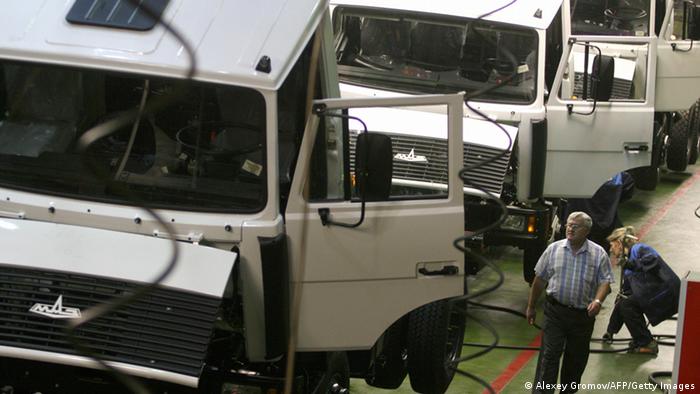
State-owned company MAZ is manufacturing trucks for more than seven decades, but probably wouldn't survive competition in free markets
At the heart of the economic relationship is Moscow's huge energy-subsidy scheme, which allows Belarus to import Russian crude oil at below-market prices, which is then refined and sold internationally. A similar deal exists for gas, which is delivered through Soviet-era pipelines and then resold.
Russian President Vladimir Putin has ordered the arrangement be slowly phased out by 2024 — a bargaining chip to force Minsk into a deeper political and economic union. Lukashenko has, so far, resisted, but at the beginning of the year, Moscow temporarily halted crude oil supplies to Minsk, leading to a 16% drop in Belarusian oil output.
"The energy subsidy is a constant Russian tool to put pressure on Belarus," Gern says, adding that objections from Minsk has led to Russia promising to compensate for some of the losses as the deal is wound down.
Huge challenges for any new leadership
The threat of losing €11 billion ($13 billion) in annual oil export revenues is a huge carrot for any new government formed if Lukashenko is forced from office by the protest movement.
Reuters news agency has estimated that Russia's support to the Belarusian economy has, at times, been worth around 12% of GDP annually. The new leadership would have to walk a tight rope to build new relations with the European Union while keeping Russia onside.
"If there was a change in government, the energy subsidies could be a very efficient lever for Russia to make it difficult for the new leaders to deliver [change]," Gern told DW.
"But without change, the economy will probably stagnate and decline in relative terms over the next decade because the incentives — like modernization and new investment — won't be in place."
Opposition calls for Belarus to withdraw from the Eurasian Economic Union — a single market with Russia and other ex-Soviet states — have so far drawn an angry response from the Minsk government, which insists it would lead to economic calamity.
Watch video02:13
Thousands ignore ban, Lukashenko stages show of defiance
Economic and currency crises loom
Belarus' economy is already set to contract by 2% this year due to the temporary oil blockade and the coronavirus pandemic, according to the World Bank. The country's most important trading partner, Russia, was the fourth-hardest-hit globally, after the United States, Brazil and India. Other estimates before the huge protest movement and widespread strikes erupted predicted a 4% decline.
The Belarusian rouble has fallen 30% against the euro since the beginning of the year due to the energy row, but is likely to fall further while the political instability ensues. On Tuesday alone, it lost between 1.2% and 1.5% against the dollar and the euro.
Reuters news agency reported that the country's central bank says it will not introduce capital controls to prevent the depreciation of the rouble. Central bank board member Dmitry Murin said the move would be counterproductive, despite growing concerns that Belarusians are hedging their bets to avoid losing their savings.
"There's been an outflow of deposits over the past two weeks which is causing a huge problem for the banks," Dzmitry Kruk, an associate at the Minsk-based IPM Research Center, told DW. He says the risk of financial turmoil is "rising" and although a series of strikes by protesters have, for now, had a "neutral" effect on the economy, any long-term walkout from the country's huge factories would be detrimental.

At a semiconductor plant in Minsk, Belarus' holding company JSC Integral produces more then 2,200 types of integrated circuits
Dynamic tech sector lights the way
Although archaic state-owned firms are still the mainstay of the Belarusian economy, a burgeoning technology sector is emerging in the 2-million-strong capital. A technology and industrial park on the edge of Minsk known as Hi-Tech Park (HTP) has 450 startups working on software development and outsourcing.
The park boasts that much of the development of the popular messaging app Viber was done at HTP. Its existence is helping the creation of a new Belarusian middle class who are tempted by careers in services rather than manufacturing. Outside of Minsk, however, average salaries remain below €200 a month.
Watch video03:12
China builds new high-tech eco-city in Belarus
Andreas Rostek-Buetti contributed to this report.
northern watch
TB Fanatic
Plain Jane
Just Plain Jane
What a shame! I was in Edinburgh for a day back in the late 80s. The Fringe was just getting going. But the city was all decked out for the arts festival and we attended the Tatoo in the evening.
 apnews.com
apnews.com
Artsy Edinburgh, laid low by the virus, hopes for recovery
By JILL LAWLESStoday

1 of 5
A woman scans her smartphone outside the Fringe Shop on the Royal Mile in Edinburgh, Scotland Friday Aug. 21, 2020. One of the biggest casualties of the coronavirus has been the Edinburgh Fringe Festival, a sprawling theatre and comedy arts and street festival that last year sold more than 3 million tickets, but this year's events are canceled, leaving artists adrift and many businesses struggling to make a living without the usual throng of tourists. (AP Photo/David Cheskin)
EDINBURGH, Scotland (AP) — Francesca Moody is spending August the way she always does: in darkened rooms in Edinburgh, watching some of the best new theater and comedy the world has to offer.
All that’s missing are the hundreds of thousands of other people who usually do the same in Scotland’s capital.
“It’s strange to be in a city that you’re so used to being saturated with culture and arts and people,” Moody, a theater producer, said backstage at the city’s shuttered Traverse Theatre.
Usually the venue is a hub for performances at the Edinburgh Fringe, the vast performance festival that helps turn the city into a global creative hub every summer — drawing crowds, generating buzz and filling the coffers of hoteliers, pub-owners, shopkeepers and tour guides.
Every summer except this one. The Fringe, the high-toned Edinburgh International Festival, the Edinburgh International Book Festival, the Art Festival and the city’s bagpipe-swirling Military Tattoo were all casualties of the U.K.’s coronavirus lockdown. Their cancellation was a body blow to Britain’s thriving creative economy, and to Edinburgh’s booming tourism sector.
But there are glimmers of light in artists’ and organizers’ determination that the festivals will return — even if it’s in a smaller, more digital form.
Moody knows all about the power of the Fringe. At the 2013 festival she produced “Fleabag,” a one-woman show by Phoebe Waller-Bridge that went on to become an Emmy-winning TV series. She is trying to keep the festival’s chemistry alive with the Shedinburgh Fringe, a series of theater and comedy shows performed in sheds erected on theater stages in Edinburgh and London and beamed to ticket-buying viewers around the world.
Moody, who watches the shows live in an otherwise empty theater, is trying to see the upside of this digital necessity.
“Prior to this, I think that the arts community was talking a lot about how we make our work digital,” she said. “This has sort of galvanized that exploration. Which in the end, will be a good thing. Because the great thing about digital is that it democratizes the work. It makes it way more accessible.”
Shedinburgh runs until Sept. 5, and the money raised will go to help artists attend the Fringe in 2021 — if it takes place.
Digital offerings such as Shedinburgh provide some succor for artists and audiences, but little comfort for Edinburgh’s tourism-dependent businesses.
Donald Emslie, chairman of the Edinburgh Tourism Action Group, said the city’s annual income from tourism doubled between 2010 and 2020. Tourism bosses worried the city was over-capacity. The pandemic brought that boom to a screeching halt: Lockdown has cost Edinburgh an estimated 1 billion pounds ($1.3 billion) since March and put 20,000 jobs at risk. The number of people visiting central Edinburgh in May and June was down 90% from 2019.
Shops, restaurants, pubs and museums have begun welcoming visitors again as lockdown eases. But there is still ample space to stroll along the Royal Mile, the cobbled street that runs from craggy Edinburgh Castle to Holyrood Palace, Queen Elizabeth II’s Edinburgh home. Usually in August it is crammed with tourists, buskers and performers thrusting leaflets advertising their shows into every available hand.
“It’s terrible. We’ve got no guests,” said Luca Vettori, owner of walking tour company Little Fish. “This time last year, we were having about 150 people a day” — many of them Americans from the cruise ships that, pre-pandemic, regularly docked in Edinburgh.
Edinburgh has been synonymous with arts festivals since 1947, when the Edinburgh International Festival was founded to revive the war-weary city. The Fringe sprang up as a democratic alternative to the invitation-only main festival, and soon came to dwarf it in size.
Last year more than 3.1 million tickets were sold to almost 4,000 Fringe shows during the three-week event.
Anyone can perform at the Fringe if they pay a registration fee and find a venue. Over the decades it has helped launch the careers of comedians including members of Monty Python, Stephen Fry, Hugh Laurie and Emma Thompson, and spawned hit stage shows including “Black Watch” and “Jerry Springer: The Opera.”
Fringe chief executive Shona McCarthy said the decision to cancel for the first time in 73 years was “profoundly sad, because you knew the ripple effect it would have on so many other people.”
“It’s not just for the artists and the technicians and what happens on stages,” she said. “It’s the small graphic design companies, it’s the postering companies, it’s the wee cafes and restaurants. The impact on this city is just enormous.”
Artists and organizers have been resourceful in response. Some Fringe performers have put their shows online, and the festival has held Zoom gatherings to help retain some of the event’s commercial and creative buzz. The International Festival also broadcast some productions online, and the book festival ran live-streamed talks by authors from around the world.
McCarthy says such digital offerings will play a bigger role in the Fringe’s future, though “nothing but nothing will replace the live experience of Edinburgh in August.”
“It’s just not the same sitting in your own house with a laptop,” she said.
The fate of next year’s festival is uncertain. McCarthy said organizers’ most optimistic scenario is “some level of return to normal” but with about 40% of the previous capacity because of social distancing requirements. The worst-case scenario is a rerun of this year’s empty stages.
“You kind of have to have faith in humanity’s ability to get through these things and to find vaccines and to move on,” she said. “Our role in the interim period is to keep the sense of what this festival is, and what it can be again, in the hearts and minds of both audiences and the artists and performers.”

Artsy Edinburgh, laid low by the virus, hopes for recovery
EDINBURGH, Scotland (AP) — Francesca Moody is spending August the way she always does: in darkened rooms in Edinburgh, watching some of the best new theater and comedy the world has to offer.
Artsy Edinburgh, laid low by the virus, hopes for recovery
By JILL LAWLESStoday

1 of 5
A woman scans her smartphone outside the Fringe Shop on the Royal Mile in Edinburgh, Scotland Friday Aug. 21, 2020. One of the biggest casualties of the coronavirus has been the Edinburgh Fringe Festival, a sprawling theatre and comedy arts and street festival that last year sold more than 3 million tickets, but this year's events are canceled, leaving artists adrift and many businesses struggling to make a living without the usual throng of tourists. (AP Photo/David Cheskin)
EDINBURGH, Scotland (AP) — Francesca Moody is spending August the way she always does: in darkened rooms in Edinburgh, watching some of the best new theater and comedy the world has to offer.
All that’s missing are the hundreds of thousands of other people who usually do the same in Scotland’s capital.
“It’s strange to be in a city that you’re so used to being saturated with culture and arts and people,” Moody, a theater producer, said backstage at the city’s shuttered Traverse Theatre.
Usually the venue is a hub for performances at the Edinburgh Fringe, the vast performance festival that helps turn the city into a global creative hub every summer — drawing crowds, generating buzz and filling the coffers of hoteliers, pub-owners, shopkeepers and tour guides.
Every summer except this one. The Fringe, the high-toned Edinburgh International Festival, the Edinburgh International Book Festival, the Art Festival and the city’s bagpipe-swirling Military Tattoo were all casualties of the U.K.’s coronavirus lockdown. Their cancellation was a body blow to Britain’s thriving creative economy, and to Edinburgh’s booming tourism sector.
But there are glimmers of light in artists’ and organizers’ determination that the festivals will return — even if it’s in a smaller, more digital form.
Moody knows all about the power of the Fringe. At the 2013 festival she produced “Fleabag,” a one-woman show by Phoebe Waller-Bridge that went on to become an Emmy-winning TV series. She is trying to keep the festival’s chemistry alive with the Shedinburgh Fringe, a series of theater and comedy shows performed in sheds erected on theater stages in Edinburgh and London and beamed to ticket-buying viewers around the world.
Moody, who watches the shows live in an otherwise empty theater, is trying to see the upside of this digital necessity.
“Prior to this, I think that the arts community was talking a lot about how we make our work digital,” she said. “This has sort of galvanized that exploration. Which in the end, will be a good thing. Because the great thing about digital is that it democratizes the work. It makes it way more accessible.”
Shedinburgh runs until Sept. 5, and the money raised will go to help artists attend the Fringe in 2021 — if it takes place.
Digital offerings such as Shedinburgh provide some succor for artists and audiences, but little comfort for Edinburgh’s tourism-dependent businesses.
Donald Emslie, chairman of the Edinburgh Tourism Action Group, said the city’s annual income from tourism doubled between 2010 and 2020. Tourism bosses worried the city was over-capacity. The pandemic brought that boom to a screeching halt: Lockdown has cost Edinburgh an estimated 1 billion pounds ($1.3 billion) since March and put 20,000 jobs at risk. The number of people visiting central Edinburgh in May and June was down 90% from 2019.
Shops, restaurants, pubs and museums have begun welcoming visitors again as lockdown eases. But there is still ample space to stroll along the Royal Mile, the cobbled street that runs from craggy Edinburgh Castle to Holyrood Palace, Queen Elizabeth II’s Edinburgh home. Usually in August it is crammed with tourists, buskers and performers thrusting leaflets advertising their shows into every available hand.
“It’s terrible. We’ve got no guests,” said Luca Vettori, owner of walking tour company Little Fish. “This time last year, we were having about 150 people a day” — many of them Americans from the cruise ships that, pre-pandemic, regularly docked in Edinburgh.
Edinburgh has been synonymous with arts festivals since 1947, when the Edinburgh International Festival was founded to revive the war-weary city. The Fringe sprang up as a democratic alternative to the invitation-only main festival, and soon came to dwarf it in size.
Last year more than 3.1 million tickets were sold to almost 4,000 Fringe shows during the three-week event.
Anyone can perform at the Fringe if they pay a registration fee and find a venue. Over the decades it has helped launch the careers of comedians including members of Monty Python, Stephen Fry, Hugh Laurie and Emma Thompson, and spawned hit stage shows including “Black Watch” and “Jerry Springer: The Opera.”
Fringe chief executive Shona McCarthy said the decision to cancel for the first time in 73 years was “profoundly sad, because you knew the ripple effect it would have on so many other people.”
“It’s not just for the artists and the technicians and what happens on stages,” she said. “It’s the small graphic design companies, it’s the postering companies, it’s the wee cafes and restaurants. The impact on this city is just enormous.”
Artists and organizers have been resourceful in response. Some Fringe performers have put their shows online, and the festival has held Zoom gatherings to help retain some of the event’s commercial and creative buzz. The International Festival also broadcast some productions online, and the book festival ran live-streamed talks by authors from around the world.
McCarthy says such digital offerings will play a bigger role in the Fringe’s future, though “nothing but nothing will replace the live experience of Edinburgh in August.”
“It’s just not the same sitting in your own house with a laptop,” she said.
The fate of next year’s festival is uncertain. McCarthy said organizers’ most optimistic scenario is “some level of return to normal” but with about 40% of the previous capacity because of social distancing requirements. The worst-case scenario is a rerun of this year’s empty stages.
“You kind of have to have faith in humanity’s ability to get through these things and to find vaccines and to move on,” she said. “Our role in the interim period is to keep the sense of what this festival is, and what it can be again, in the hearts and minds of both audiences and the artists and performers.”
Plain Jane
Just Plain Jane

UK Supreme Court lifts info share block on IS 'Beatles' case
LONDON (AP) — British authorities can share information with U.S. prosecutors about two members of a suspected Islamic State militant cell in Syria known as “The Beatles,” after a U.K. Supreme Court ruling that may lead to the men being tried in America. The decision released Wednesday comes a...
Click to copy
UK Supreme Court lifts info share block on IS ‘Beatles’ case
By DANICA KIRKAyesterday
LONDON (AP) — British authorities can share information with U.S. prosecutors about two members of a suspected Islamic State militant cell in Syria known as “The Beatles,” after a U.K. Supreme Court ruling that may lead to the men being tried in America.
The decision released Wednesday comes a week after U.S. Attorney General William Barr informed British authorities that his prosecutors wouldn’t seek the death penalty for El Shafee ElSheikh and Alexanda Kotey. Both men grew up in Britain but had their citizenship removed after they traveled abroad to fight with the IS group.
The Supreme Court on Wednesday lifted a stay that barred the Home Office, the government department in charge of law enforcement, from sharing information about the men with U.S. prosecutors.
The court ordered that “the application of the appellant for a continuation of the stay … be refused, and the stay be lifted.”
The court had issued the stay after ElSheikh’s mother challenged the government’s decision to share the information. She argued that doing so was illegal because the evidence could be used to seek the death penalty, in violation of British and European law.
While the court agreed that data protection laws barred the government from helping a foreign government pursue the death penalty, the U.S. has now taken capital punishment off the table.
Both British and U.S. authorities allege ElSheikh and Kotey were part of a kidnapping and torture squad responsible for the murder of several Western hostages in Syria. The group became known as The Beatles because all four of its members spoke with British accents.
ElSheikh and Kotey were captured by Syrian rebel forces in January 2018 and later turned over to U.S. authorities. They are being held by the military overseas. The U.S. initially asked Britain to prosecute them but decided to pursue the case itself after U.K. authorities declined.
The Home Office declined to comment on Wednesday’s ruling. However, Home Secretary Priti Patel has made it clear in the past that she supports cooperating with the U.S. to prosecute terrorists.
Patel and Barr last year signed an agreement making it easier for authorities investigating serious crimes in the U.S. and Britain to seek electronic data directly from tech companies.
“This is just one example of the enduring security partnership we have with the U.S., and I look forward to continuing to work with them and global partners to tackle these heinous crimes,” she said at the time.
Plain Jane
Just Plain Jane
Well, this is interesting...
Serbia surprisingly joins EU in condemnation of Belarus vote
By DUSAN STOJANOVICtoday

 apnews.com
apnews.com
1 of 3
In this photo taken Tuesday, Dec. 3, 2019, Belarus President Alexander Lukashenko, centre, reviews the honor guard with Serbian President Aleksandar Vucic upon his arrival at the Serbia Palace in Belgrade, Serbia. In a surprise move Thursday Aug. 27, 2020, Serbia has joined the European Union in its rejection of the election results in Belarus that kept the country's longtime leader in power and condemned his crackdown against pro-democracy protesters. (AP Photo/Darko Vojinovic)
BELGRADE, Serbia (AP) — In a surprise move, Serbia has joined the European Union in its rejection of the election results in Belarus and criticism of a crackdown against those protesting against the country’s longtime autocratic leader.
Serbia’s prime minister, Ana Brnabic, said Thursday that Belgrade signed up with the EU resolution on Belarus in order to align the Balkan country’s policies with those of the bloc it formally wants to join.
Belgrade has had close relations with Belarus President Alexander Lukashenko, who last visited the Balkan country in December. He was the only world leader who visited Serbia during the 1999 NATO bombing of the country over its crackdown against ethnic Albanian separatists, which was seen as his support of Serbia’s former strongman, Slobodan Milosevic.
“I hope Lukashenko won’t hold it against us,” Brnabic said while admitting for the first time that Serbia accepted the EU stance on Belarus’ elections. “We should not forget the friendship Lukashenko has shown to our people during the difficult times.”
Last month, European Union leaders said they stand beside the people protesting for democratic rights in Belarus, rejecting election results that swept the country’s leader of 26 years back into power and warned they are preparing a long list of Belarusians who face sanctions over vote fraud and a brutal crackdown on protesters.
Serbia’s acceptance of the EU criticism of the Belarus leader was first revealed Wednesday in tweets by the EU and US ambassadors to Belgrade who hailed the move.
“I welcome Serbia for joining EU Declaration on Presidential Elections in Belarus,” EU Ambassador Sam Fabrizi wrote on Twitter.
The U.S. ambassador to Serbia, Anthony Godfrey, also praised Belgrade’s decision. “It is great to see that Serbia stands by its European environment,” he wrote on Twitter.
Serbian populist President Aleksandar Vucic has also faced criticism from home and abroad for curtailing media freedoms, holding elections that the opposition claims are not free and fair and cracking down on anti-government demonstrators.
Although formally seeking EU membership, Serbia has been strengthening political, economic and military ties with Russia and China. It has refused to join EU sanctions against Russia for its policies over Ukraine.
___
Follow AP’s coverage of Belarus at https://www.apnews.com/Belarus
Serbia surprisingly joins EU in condemnation of Belarus vote
By DUSAN STOJANOVICtoday

Serbia surprisingly joins EU in condemnation of Belarus vote
BELGRADE, Serbia (AP) — In a surprise move, Serbia has joined the European Union in its rejection of the election results in Belarus and criticism of a crackdown against those protesting against the country’s longtime autocratic leader.
1 of 3
In this photo taken Tuesday, Dec. 3, 2019, Belarus President Alexander Lukashenko, centre, reviews the honor guard with Serbian President Aleksandar Vucic upon his arrival at the Serbia Palace in Belgrade, Serbia. In a surprise move Thursday Aug. 27, 2020, Serbia has joined the European Union in its rejection of the election results in Belarus that kept the country's longtime leader in power and condemned his crackdown against pro-democracy protesters. (AP Photo/Darko Vojinovic)
BELGRADE, Serbia (AP) — In a surprise move, Serbia has joined the European Union in its rejection of the election results in Belarus and criticism of a crackdown against those protesting against the country’s longtime autocratic leader.
Serbia’s prime minister, Ana Brnabic, said Thursday that Belgrade signed up with the EU resolution on Belarus in order to align the Balkan country’s policies with those of the bloc it formally wants to join.
Belgrade has had close relations with Belarus President Alexander Lukashenko, who last visited the Balkan country in December. He was the only world leader who visited Serbia during the 1999 NATO bombing of the country over its crackdown against ethnic Albanian separatists, which was seen as his support of Serbia’s former strongman, Slobodan Milosevic.
“I hope Lukashenko won’t hold it against us,” Brnabic said while admitting for the first time that Serbia accepted the EU stance on Belarus’ elections. “We should not forget the friendship Lukashenko has shown to our people during the difficult times.”
Last month, European Union leaders said they stand beside the people protesting for democratic rights in Belarus, rejecting election results that swept the country’s leader of 26 years back into power and warned they are preparing a long list of Belarusians who face sanctions over vote fraud and a brutal crackdown on protesters.
Serbia’s acceptance of the EU criticism of the Belarus leader was first revealed Wednesday in tweets by the EU and US ambassadors to Belgrade who hailed the move.
“I welcome Serbia for joining EU Declaration on Presidential Elections in Belarus,” EU Ambassador Sam Fabrizi wrote on Twitter.
The U.S. ambassador to Serbia, Anthony Godfrey, also praised Belgrade’s decision. “It is great to see that Serbia stands by its European environment,” he wrote on Twitter.
Serbian populist President Aleksandar Vucic has also faced criticism from home and abroad for curtailing media freedoms, holding elections that the opposition claims are not free and fair and cracking down on anti-government demonstrators.
Although formally seeking EU membership, Serbia has been strengthening political, economic and military ties with Russia and China. It has refused to join EU sanctions against Russia for its policies over Ukraine.
___
Follow AP’s coverage of Belarus at https://www.apnews.com/Belarus
Plain Jane
Just Plain Jane
Looks like the US isn't the only place where tempers are running high.

 www.dw.com
www.dw.com
Coronavirus skeptics vow to 'storm Berlin' despite demo ban
Anti-coronavirus protesters in Berlin are planning a large-scale demonstration at the weekend in defiance of a ban imposed by the state's authorities. Police in the capital are preparing for all eventualities.
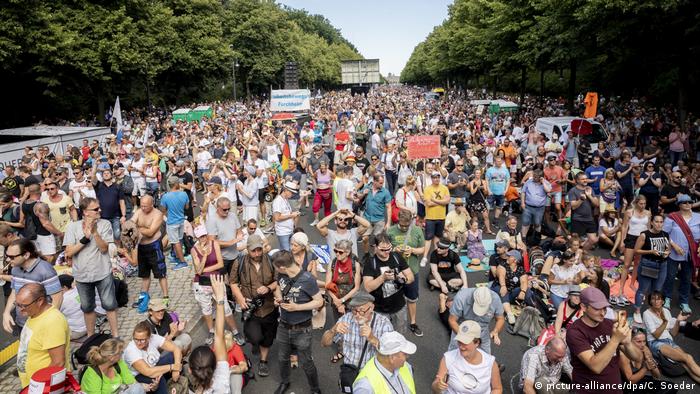
Organizers of the coronavirus skeptics' demonstrations set to take place this weekend expected more than 22,000 people to descend on Berlin, with bus trips organized from around the country.
On Wednesday, however, the capital's authorities called the whole thing off.
Berlin Interior Senator Andreas Geisel said the controversial decision was prompted by behavior at a previous demo on August 1, where protesters "deliberately" violated coronavirus rules: Many participants refused to wear face masks and maintain social distance.
Read more: Germany debates curbing freedom of assembly after coronavirus rallies
Watch video02:03
Berlin protest against virus curbs draws thousands
Police gear up for all eventualities
Since the announcement of the ban, Berlin's police have been preparing for a number of scenarios, including the eventuality that thousands of demonstrators take to Berlin's streets despite the ban.
According to the city's authorities which approved the ban, some 1,000 new rallies have been registered since Wednesday's decision.
Supporters have been using social media to encourage people to violate the ban and travel en masse to the capital.
Read more: Germany's growing anti-lockdown movement
Political scientist Josef Holnburger has been closely observing conspiracy theorists, particularly on the messenger service Telegram.
"Since the ban was announced, the general observation seems to be that people are still planning on coming to Berlin — with or without the ban. There are also growing calls to use violence," Holnburger told DW.
"The ban on the protests might keep the more moderate protesters at home, but not the more radical ones," Holnburger said.
Organizers calling themselves "Querdenker 711" (Lateral thinkers 711) are indeed adamant that the protests will go ahead — with or without permission — and are challenging the ban in Germany's constitutional court.

Police are preparing themselves for any anti-coronavirus demonstrations in Berlin
The Stuttgart-based group is calling for the immediate removal of the German government and the termination of all coronavirus measures.
'Storm Berlin'
Right-wing extremists in particular are calling for protesters to "storm Berlin." A hashtag by the same name #SturmaufBerlin was trending on Twitter throughout Thursday. Opponents of the demo quickly high-jacked the hashtag, however, and began posting it with photos of cake.
Previous demonstrations have attracted an extreme mix of critics, including COVID-19 deniers, anti-vaxxers, far-right Alternative for Germany (AfD) politicians, conspiracy theorists, and several groups from the far-right extremist scene.
Read more: Germany's Reichsbürger movement out to delegitimize the state
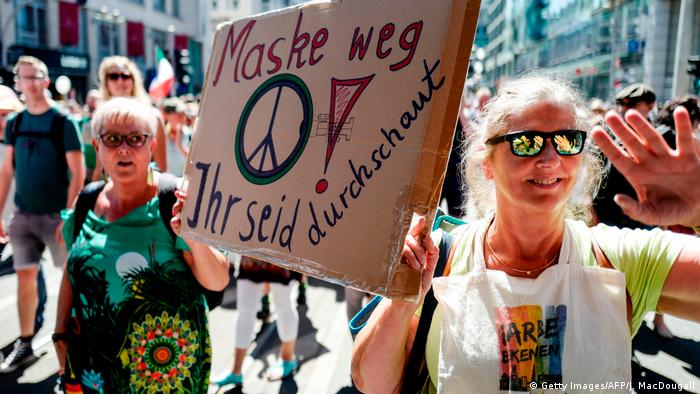
Demonstrations attract a mix of COVID-19 deniers, anti-vaxxers, conspiracy theorists, and the far-right extremist scene
Observers of the scene had warned ahead of this weekend's planned demo that it would turn into the largest gathering of right-wing extremists since the protests in September 2018 in the eastern city of Chemnitz.
Jürgen Elsässer from the right-wing extremist "Compact" magazine said he considers Saturday the "most important day since 1945," referring to Germany's watershed moment — the end of WW2.
The controversial move to ban the demo was largely supported by Berlin politicians.
Members of the far-right AfD, however, called on people to mobilize against the ban. The decision shows how the Berlin senate is "trampling on basic rights," said regional AfD leader in Berlin Nicolaus Fest.

Protesters are camped out behind banners demanding German politicians be 'locked away'
Protesters await verdict on appeal
Whether or not the ban on this weekend's protests will be upheld is now in the hands of Berlin's administrative court.
Political scientist Jasmin Riedel says the decision in Berlin can be seen from two perspectives: legally and politically.
Read more: Germany imposes tougher measures to curb coronavirus
"On the one hand there is the possibility to limit open-air gatherings, but corona has left us in a unique situation," she told DW. "Before anything can be banned, it would be important to check if special requirements like face masks and social distancing can be upheld."
As that wasn't the case at the August 1 protest, Berlin state authorities came to the conclusion that corona measures would not be upheld at this weekend's demo.
From the political perspective, however, Riedl said it was "extremely clumsy" of Berlin's interior senator Geisel to add that he didn't want Berlin to be used as a 'backdrop for coronavirus deniers, Reichsbürger and right-wing extremists.'
"In doing so, he "gifted the protesters an extra line of argument," Riedl said.

Coronavirus skeptics vow to 'storm Berlin' – DW – 08/28/2020
Anti-lockdown protesters in Berlin are planning a large-scale demonstration at the weekend. A court on Friday scrapped the ban imposed by the state's authorities. Police are preparing for all eventualities.
Coronavirus skeptics vow to 'storm Berlin' despite demo ban
Anti-coronavirus protesters in Berlin are planning a large-scale demonstration at the weekend in defiance of a ban imposed by the state's authorities. Police in the capital are preparing for all eventualities.

Organizers of the coronavirus skeptics' demonstrations set to take place this weekend expected more than 22,000 people to descend on Berlin, with bus trips organized from around the country.
On Wednesday, however, the capital's authorities called the whole thing off.
Berlin Interior Senator Andreas Geisel said the controversial decision was prompted by behavior at a previous demo on August 1, where protesters "deliberately" violated coronavirus rules: Many participants refused to wear face masks and maintain social distance.
Read more: Germany debates curbing freedom of assembly after coronavirus rallies
Watch video02:03
Berlin protest against virus curbs draws thousands
Police gear up for all eventualities
Since the announcement of the ban, Berlin's police have been preparing for a number of scenarios, including the eventuality that thousands of demonstrators take to Berlin's streets despite the ban.
According to the city's authorities which approved the ban, some 1,000 new rallies have been registered since Wednesday's decision.
Supporters have been using social media to encourage people to violate the ban and travel en masse to the capital.
Read more: Germany's growing anti-lockdown movement
Political scientist Josef Holnburger has been closely observing conspiracy theorists, particularly on the messenger service Telegram.
"Since the ban was announced, the general observation seems to be that people are still planning on coming to Berlin — with or without the ban. There are also growing calls to use violence," Holnburger told DW.
"The ban on the protests might keep the more moderate protesters at home, but not the more radical ones," Holnburger said.
Organizers calling themselves "Querdenker 711" (Lateral thinkers 711) are indeed adamant that the protests will go ahead — with or without permission — and are challenging the ban in Germany's constitutional court.

Police are preparing themselves for any anti-coronavirus demonstrations in Berlin
The Stuttgart-based group is calling for the immediate removal of the German government and the termination of all coronavirus measures.
'Storm Berlin'
Right-wing extremists in particular are calling for protesters to "storm Berlin." A hashtag by the same name #SturmaufBerlin was trending on Twitter throughout Thursday. Opponents of the demo quickly high-jacked the hashtag, however, and began posting it with photos of cake.
Previous demonstrations have attracted an extreme mix of critics, including COVID-19 deniers, anti-vaxxers, far-right Alternative for Germany (AfD) politicians, conspiracy theorists, and several groups from the far-right extremist scene.
Read more: Germany's Reichsbürger movement out to delegitimize the state

Demonstrations attract a mix of COVID-19 deniers, anti-vaxxers, conspiracy theorists, and the far-right extremist scene
Observers of the scene had warned ahead of this weekend's planned demo that it would turn into the largest gathering of right-wing extremists since the protests in September 2018 in the eastern city of Chemnitz.
Jürgen Elsässer from the right-wing extremist "Compact" magazine said he considers Saturday the "most important day since 1945," referring to Germany's watershed moment — the end of WW2.
The controversial move to ban the demo was largely supported by Berlin politicians.
Members of the far-right AfD, however, called on people to mobilize against the ban. The decision shows how the Berlin senate is "trampling on basic rights," said regional AfD leader in Berlin Nicolaus Fest.

Protesters are camped out behind banners demanding German politicians be 'locked away'
Protesters await verdict on appeal
Whether or not the ban on this weekend's protests will be upheld is now in the hands of Berlin's administrative court.
Political scientist Jasmin Riedel says the decision in Berlin can be seen from two perspectives: legally and politically.
Read more: Germany imposes tougher measures to curb coronavirus
"On the one hand there is the possibility to limit open-air gatherings, but corona has left us in a unique situation," she told DW. "Before anything can be banned, it would be important to check if special requirements like face masks and social distancing can be upheld."
As that wasn't the case at the August 1 protest, Berlin state authorities came to the conclusion that corona measures would not be upheld at this weekend's demo.
From the political perspective, however, Riedl said it was "extremely clumsy" of Berlin's interior senator Geisel to add that he didn't want Berlin to be used as a 'backdrop for coronavirus deniers, Reichsbürger and right-wing extremists.'
"In doing so, he "gifted the protesters an extra line of argument," Riedl said.
Plain Jane
Just Plain Jane
Zerohedge
ZeroHedge - On a long enough timeline, the survival rate for everyone drops to zero
Sweden Invades Tourist Island, Fearing Nearby Russian War Games

by Tyler Durden
Fri, 08/28/2020 - 05:00
TwitterFacebookRedditEmailPrint
Authored by Jason Ditz via AntiWar.com,
Sweden is rapidly militarizing Gotland, an island with value mostly in tourism, putting more ground troops on the island and warships in the area after Russian naval exercises in the Black Sea, which they interpreted as a regional threat.
Both NATO and Russia have been holding exercises on the island, and while there is no indication Gotland is in any way a target, it seems Sweden is taking this opportunity to bulk up its military presence along the coast.
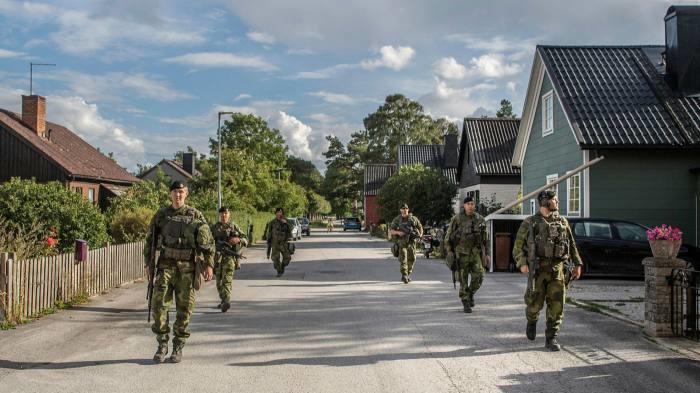 Patrols in holiday destination of Gotland, via AP.
Patrols in holiday destination of Gotland, via AP."Holiday makers in Sweden heading out Tuesday to enjoy summer weather on Gotland, a scenic island in the Baltic Sea, were jolted when armored personnel carriers and other military vehicles boarded their tourist ferry, which was then escorted by Swedish fighter jets and a warship," The New York Times described this week.
In addition to being a tourist destination, Gotland is also a strategically important site, often referred to as Sweden’s “fixed aircraft carrier.”
The Swedish military deployed four naval warships and an unspecified number of ground forces and warplanes in response to a major Russian naval exercise that has set off alarms regionally.
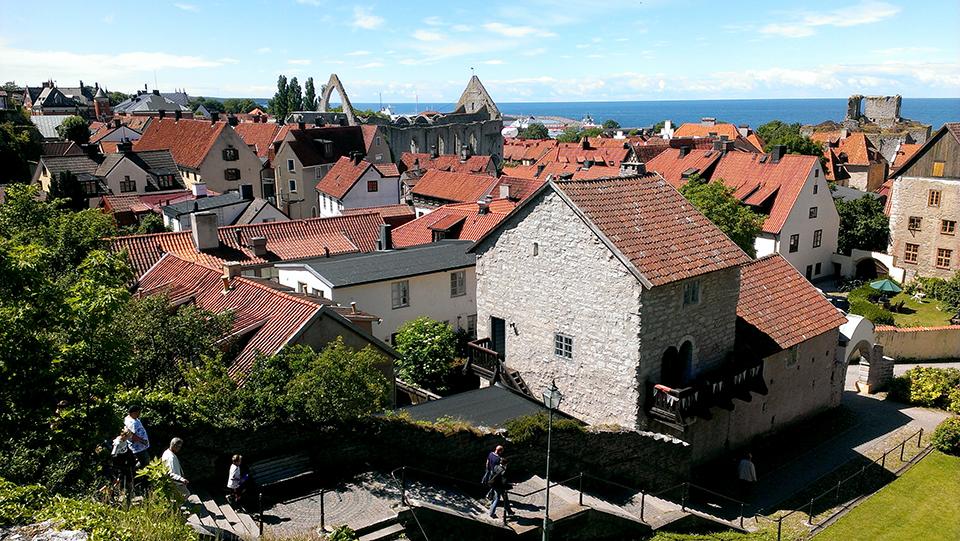 Picturesque Gotland island, file image
Picturesque Gotland island, file imageThe only real connection is that Gotland is across the Baltic from Kaliningrad, a Russian exclave which has hosted some of the naval exercises.
While Russia wants to emphasize its naval readiness, that probably doesn’t mean ambitions in Scandinavia.
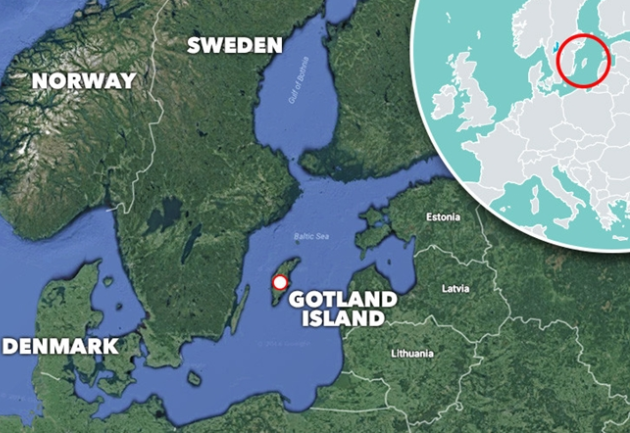
Sweden’s largest island, Gotland was briefly occupied by Russian forces in 1808 during the Finnish War. Sweden repelled the Russians less than a month later. The island has not been contested since.
northern watch
TB Fanatic
northern watch
TB Fanatic
Plain Jane
Just Plain Jane
Zerohedge
ZeroHedge - On a long enough timeline, the survival rate for everyone drops to zero
German Court Overturns Protest Ban - Tomorrow's Massive Anti-Lockdown March To Go-Ahead

by Tyler Durden
Fri, 08/28/2020 - 22:00
TwitterFacebookRedditEmailPrint
Earlier in the week, we reported that authorities in Berlin had banned a series of planned demonstrations against the country's COVID-19 lockdown measures - claiming they were organized by "right-wing extremists" and would lead to the spread of the virus.
The city said it would deploy several thousand police around the German capital this weekend, citing threats.
Notably, the German city did not ban a June Black Lives Matter protest in which approximately 15,000 people turned out.
Meanwhile, the Assembly for Freedom had 17,000 registered demonstrators for the August 29 event before Berlin shut it down.
"We are still in the middle of a pandemic with rising infection figures," said Berlin Interior Minister, Andreas Geisel.
"This is not a decision against freedom of assembly, but a decision in favor of infection protection," he continued, adding that Berlin should not be "misused as a stage for corona deniers… and right-wing extremists."
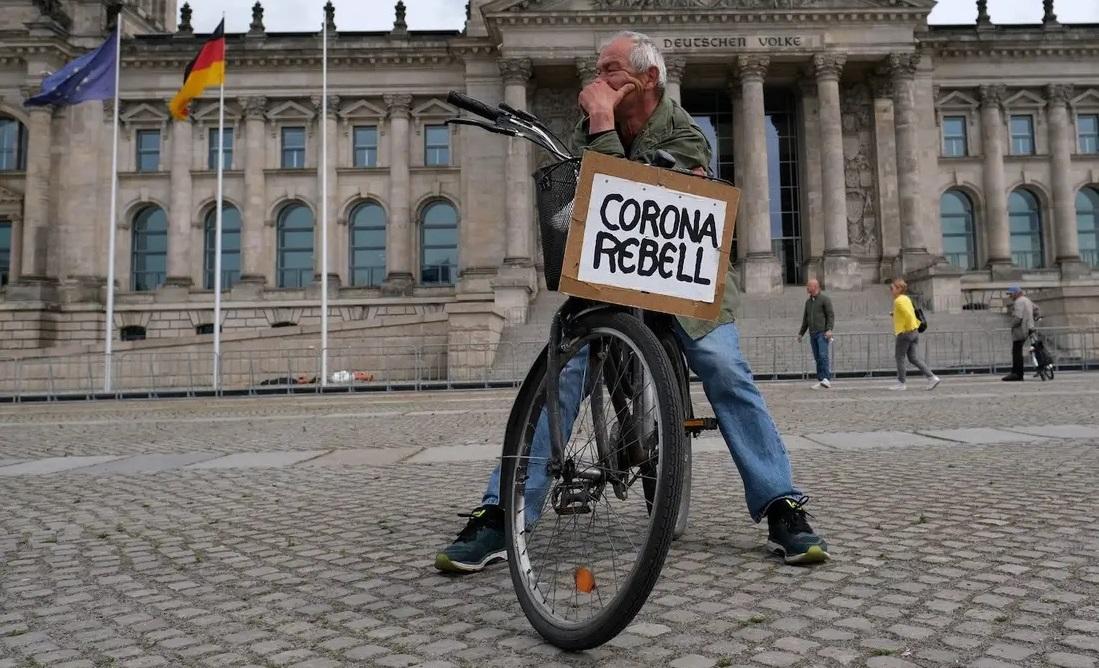
About 20,000 people, including libertarians, constitutional loyalists, far-right supporters and anti-vaccination activists, marched in Berlin on Aug. 1.
But now, as Off-Guardian reports, the Berlin Senate’s decision to ban the coronavirus protest planned for this weekend has been overturned by the Administrative Court.

That said, the protest will still be under some restrictions – the court ruled that the organizers must follow all the laws and restrictions they are protesting against.
According to a report from Deutsche Welle:
...the judges said protest organizers and participants must provide barriers in front of the stages where speeches will be held - and must regularly remind participants to observe social distancing rules and keep their distance.
Wearing masks was not included in the judge’s guidelines for the protest.
The court’s decision can be appealed by the Senate, but given the timeframe that seems unlikely at this stage.
Many thousands were reportedly travelling to Berlin regardless, as it was thought the protest organizers intended to go ahead in spite of the ban. A similar protest on August 1st (pictured above) drew tens of thousands of people.
The Berlin protest is taking place alongside other events around the world for a global day of action. Protests are planned for London, Ottawa, Paris and Zurich.
northern watch
TB Fanatic
northern watch
TB Fanatic
Riots in Sweden after Quran burning by far-right activists
Swedish police say far-right activists have burned a Quran in the southern city of Malmo, sparking riots and unrest after more than 300 people gathered to protest
By The Associated Press
29 August 2020
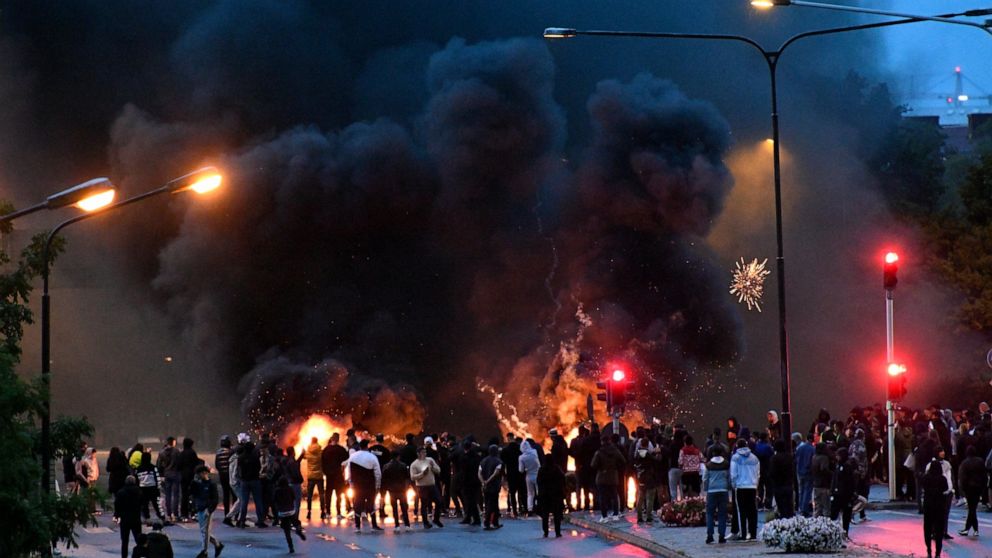
 The Associated Press
The Associated Press
Smoke billows from burning tyres and pallets and fireworks as a few hundred protesters riot in the Rosengard neighbourhood of Malmo, Sweden, Friday, Aug. 28, 2020. Far-right activists burned a Quran in the southern Swedish city of Malmo, sparking riots and unrest after more than 300 people gathered to protest, police said Saturday. Rioters set fires and threw objects at police and rescue services Friday night, slightly injuring several police officers and leading to the detention of about 15 people. (TT News Agency via AP)
STOCKHOLM -- Far-right activists burned a Quran in the southern Swedish city of Malmo, sparking riots and unrest after more than 300 people gathered to protest, police said Saturday.
Rioters set fires and threw objects at police and rescue services Friday night, slightly injuring several police officers and leading to the detention of about 15 people.
The violence followed the burning Friday afternoon of a Quran, near a predominantly migrant neighborhood, that was carried out by far-right activists and filmed and posted online, according to the TT news agency.
Later, three people were arrested on suspicion of inciting hatred against an ethnic group after kicking the Muslim holy book.
The head of the United Nations Alliance of Civilizations expressed “unequivocal condemnation of the burning of the Quran by far-right extremists ... as despicable and totally unacceptable," his spokeswoman said.
Miguel Moratinos called on religious leaders of all faiths to denounce all violence based on religious belief, spokeswoman Nihal Saad said, adding that “such deplorable acts perpetrated by hate-mongers ... and other radical groups incite violence and tear apart the fabric of our communities” which are an affront to U.N. values and the alliance which works to strengthen inter-culutral and inter-religious dialogue.

 abcnews.go.com
abcnews.go.com
Swedish police say far-right activists have burned a Quran in the southern city of Malmo, sparking riots and unrest after more than 300 people gathered to protest
By The Associated Press
29 August 2020

Smoke billows from burning tyres and pallets and fireworks as a few hundred protesters riot in the Rosengard neighbourhood of Malmo, Sweden, Friday, Aug. 28, 2020. Far-right activists burned a Quran in the southern Swedish city of Malmo, sparking riots and unrest after more than 300 people gathered to protest, police said Saturday. Rioters set fires and threw objects at police and rescue services Friday night, slightly injuring several police officers and leading to the detention of about 15 people. (TT News Agency via AP)
STOCKHOLM -- Far-right activists burned a Quran in the southern Swedish city of Malmo, sparking riots and unrest after more than 300 people gathered to protest, police said Saturday.
Rioters set fires and threw objects at police and rescue services Friday night, slightly injuring several police officers and leading to the detention of about 15 people.
The violence followed the burning Friday afternoon of a Quran, near a predominantly migrant neighborhood, that was carried out by far-right activists and filmed and posted online, according to the TT news agency.
Later, three people were arrested on suspicion of inciting hatred against an ethnic group after kicking the Muslim holy book.
The head of the United Nations Alliance of Civilizations expressed “unequivocal condemnation of the burning of the Quran by far-right extremists ... as despicable and totally unacceptable," his spokeswoman said.
Miguel Moratinos called on religious leaders of all faiths to denounce all violence based on religious belief, spokeswoman Nihal Saad said, adding that “such deplorable acts perpetrated by hate-mongers ... and other radical groups incite violence and tear apart the fabric of our communities” which are an affront to U.N. values and the alliance which works to strengthen inter-culutral and inter-religious dialogue.

Riots in Sweden after Quran burning by far-right activists
Swedish police say far-right activists have burned a Quran in the southern city of Malmo, sparking riots and unrest after more than 300 people gathered to protest
northern watch
TB Fanatic
Plain Jane
Just Plain Jane

Norway: Clashes break out at anti-Islam rally – DW – 08/29/2020
Tensions in the Norwegian capital came to a head when an anti-Islam protester ripped pages from the Quran. Police used tear gas to keep rival groups separated, arresting nearly 30 people.
Norway: Clashes break out at anti-Islam rally
Tensions in the Norwegian capital came to a head when an anti-Islam protester ripped pages from the Quran. Police used tear gas to keep rival groups separated, arresting nearly 30 people.
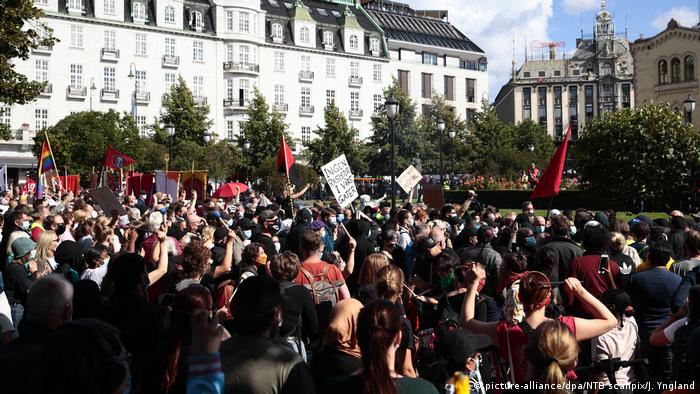
A rally by Islam critics in Oslo was slammed by counter-protesters (pictured)
Clashes broke out at an anti-Islam rally in the Norwegian capital of Oslo on Saturday, prompting authorities to end the event early.
The rally, organized by the group Stop Islamization of Norway (SIAN), took place near the parliament building.
Hundreds of counter-protesters also gathered, banging drums and chanting "No racists in our streets," reported news agency DPA.
The situation came to a head when a female member of SIAN ripped pages from the Quran and spat on them, news agency NTB reported.
The woman, who has previously been charged and acquitted of hate speech, told counter-protesters: "Look, now I will desecrate the Quran."
Read more: Norway mosque attacker sentenced to 21 years 'preventive detention'
Nearly 30 arrested
Clashes then erupted, with counter-protesters throwing eggs at SIAN members and attempting to jump police barricades.
Some counter-protesters also began kicking a police van and climbing on the hood of the vehicle.
Authorities used pepper spray and tear gas to keep the rival groups apart, eventually ending the SIAN rally early.
Police arrested 29 people, several of whom were minors, Norwegian public broadcaster NRK reported.
The protest in Norway comes on the heels of a similar incident in the Swedish city of Malmo on Friday, where protesters clashed with police after right-wing extremists burned a copy of the Quran.
Plain Jane
Just Plain Jane

Montenegro election: Ruling DPS leads with slim margin – DW – 08/31/2020
In Montenegro, the ruling DPS was nearly neck-and-neck with its main rivals, according to the latest official tally. The campaign was dominated by tensions with the Serbian Orthodox Church.
Montenegro votes in religiously charged election
The decades-long rule of Montenegro's Democratic Party of Socialists is up in the air as hundreds of thousands head to the polls. The Serbian Orthodox Church has waded into the race in opposition to the ruling party.
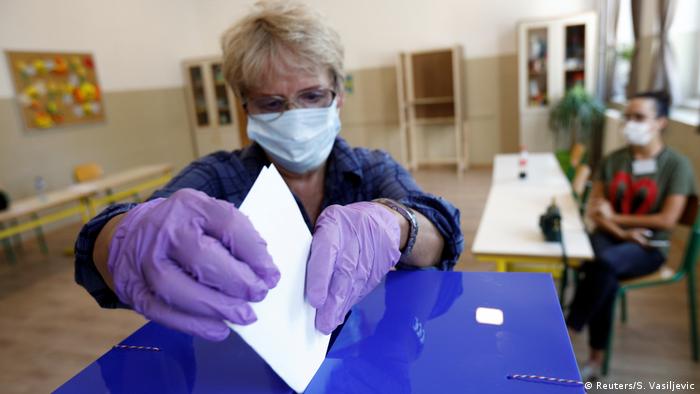
Montenegrins on Sunday cast their vote in a highly-polarized election to determine whether the Democratic Party of Socialists (DPS) would continue their decades-long reign in parliament.
Opinion polls show the DPS winning with slim margins, but falling short of the numbers they would need to form a government alone.
Montenegrin President Milo Djukanovic, considered one of Europe's longest-serving leaders, leads the DPS. Although some consider him a Western-oriented reformer who has led the country since the end of communism, he faces widespread allegations of corruption and links to organized crime.
Read more: Montenegro: Coronavirus ban feeds clash between state and Serbian Orthodox Church
State vs. church
Djukanovic's government has also come under scrutiny for a controversial law that could be used to transform hundreds of Serbian Orthodox Church monasteries in Montenegro into state property.
Rightwing and pro-Serb opposition parties are projected to make gains, riding on a wave of support for the Serbian Orthodox Church. The church's top Montenegrin bishop said last week that it was "natural to rejoice in those who are against the (religion) law."
Propped up by parts of Montenegro's Serb population, those parties seek closer ties to Serbia and Russia. President Djukanovic has accused them of being "the political infantry of Greater Serbia nationalism."
Read more: EU accession of Balkan countries: Old aims, new rules
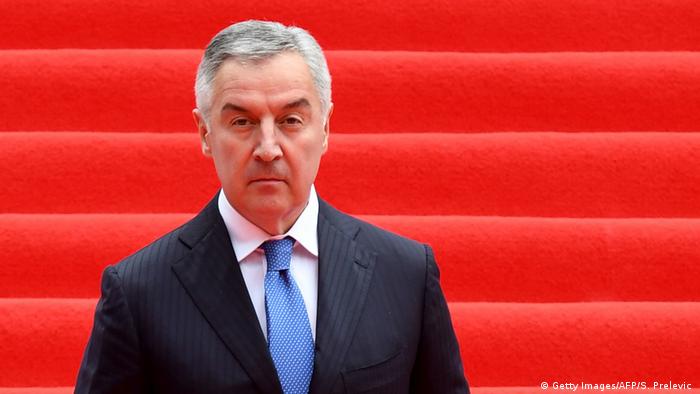
Montenegro's President Milo Djukanovic
New horizon?
Meanwhile, a handful of parties have honed in on bolstering rule of law and supporting Montenegro's economy as it deals with the fallout of the novel coronavirus pandemic. Analysts believe these smaller parties could play a decisive role in who gets to form the next government.
"It is a tense situation and the outcome of the election will depend on the outcome within the civil bloc," Podgorica-based analyst Milos Besis told Agence France-Presse.
Montenegro gained independence from Serbia in 2006, joined NATO a decade later and has taken steps to join the EU. For observers, Sunday's election could determine the fate of its pro-Western trajectory.
ls/mm (AP, AFP)
Plain Jane
Just Plain Jane

Farm reform protesters converge on Germany's Koblenz – DW – 08/31/2020
A drastic shift in EU agriculture policy to ensure survival of family farms and ecologically grown foodstuffs has been urged by protesters in Koblenz. The city is hosting EU farm ministers until Tuesday.
Koblenz: civil society groups demand 'radical' EU farm policy reform
A drastic shift in EU agriculture policy to ensure survival of family farms and ecologically grown foodstuffs has been urged by protesters in Koblenz. The city is hosting EU farm ministers until Tuesday.
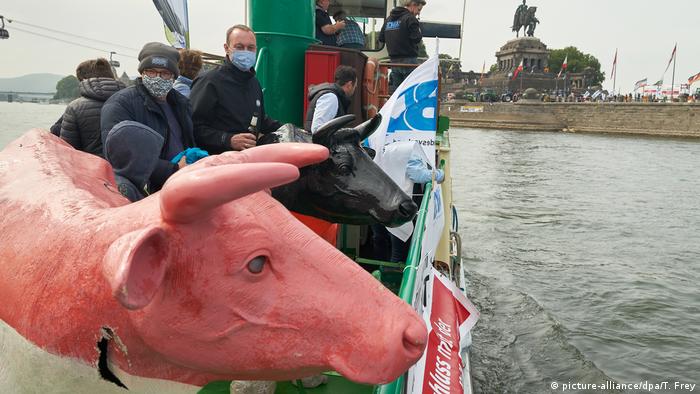
European civil society groups angered by decades of mass industrialized agriculture converged Sunday on Koblenz, where 12 EU farm and fisheries ministers began two days of informal talks hosted by Germany's Agriculture Minister Julia Klöckner.
Police said 350 protesters, some on tractors and in animal costumes, headed towards the venue, a riverside palace, while a cross-European alliance, including bio farmers, environmentalists and slow-food advocates, put its turnout at 1,300 persons.
Koblenz lies at the junction of the (larger) Rhine and Moselle rivers in Germany's state of Rhineland-Palatinate.
Read more: Europe's hedgehogs endangered by farming practices
The alliance of 400 European civil society groups, calling itself in Germany "We are fed up with the Agra industry" (Wir haben Agraindustrie satt!) and "Good Food, Good Farming, Europe, urged ministers to make "radical" changes to the EU's Common Agricultural Policy (CAP).
Better distribution of EU's farm budget urged
At €55 billion ($65 billion) a year — roughly a third of the bloc's budget — CAP's allocation of flat-rate subsidies for land areas farmed was clearly out-of-date and should be oriented instead toward the new European Commission's Green Deal plan, said the alliance.
"The Green Deal sets the course that the post-CAP must follow," it said, and ministers must "ensure" sustainable food sovereignty for future generations and rebuild ecosystems, soils and resilience in rural livelihoods.
Current EU policy of fetching cheap, unsustainable imports also degraded land in developing countries, said the alliance, echoing a German finding in June that Germany's "footprint" through imported foodstuffs was three times heavier abroad than on its own soil.
Watch video01:48
EU farmers want farming policies changed
'Immense' responsibility
Germany, which currently holds the EU's rotating presidency, had an "immense" responsibility to bring a CAP reform into line with climate and biodiversity goals, the alliance insisted, directing its remarks at German Minister Klöckner, who hails from Rhineland-Palatinate.
Klöckner, who has floated a European animal welfare label and an EU "farm-to-fork" campaign to reduce usage of herbicides, fertilizers and antibiotics, drew a caution Sunday from Joachim Rukwied.
The farming federation president — for German growers, and Europe's association Copa — said extra costs should not be imposed on farmers, who instead should get supplements to their incomes for environment protection and animal welfare tasks.
'Massive' concentration
The alliance of civil society groups said EU policy of recent decades of rewarding large landowners had "fueled" a massive concentration in farm and land ownership.
Across the EU, between 2005 and 2016, more than four million farms — often family-run livelihoods — had been forced to shut down due to economic pressures.
"The remaining operations run increasingly large areas," said the alliance.
ipj/sri (dpa, AFP)
Plain Jane
Just Plain Jane
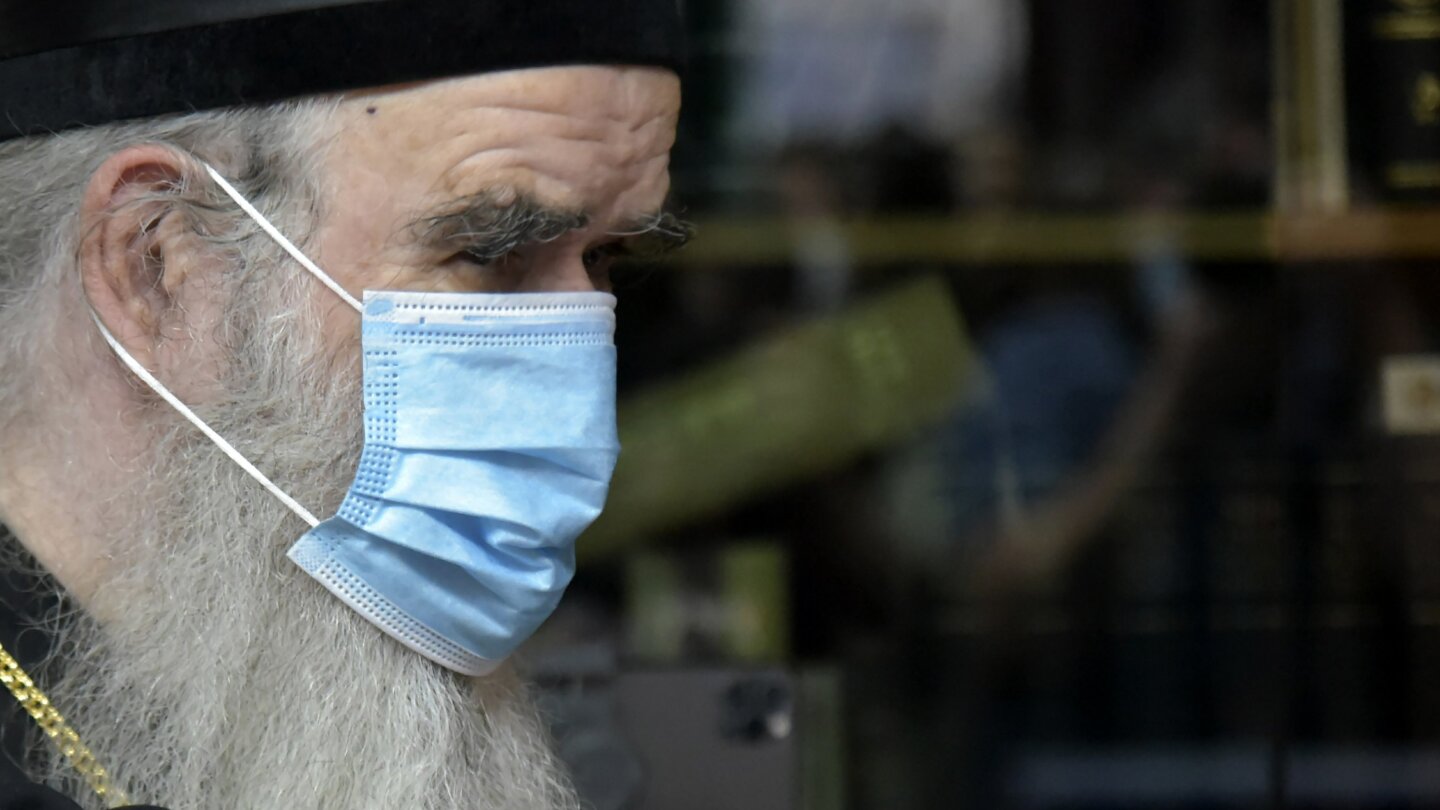
Montenegro opposition claims election victory in tight vote
PODGORICA, Montenegro (AP) — Montenegro's pro-Serb and Russian opposition groups claimed victory against the ruling pro-Western party in a tense parliamentary election that could see a change in the course of the small Balkan state.
Click to copy
Montenegro opposition claims election victory in tight vote
By PREDRAG MILICyesterday

1 of 11
People wait in line at a poling station in Podgorica, Montenegro, Sunday, Aug. 30, 2020. Voters in Montenegro on Sunday cast ballots in a tense election that is pitting the long-ruling pro-Western party against the opposition seeking closer ties with Serbia and Russia. The parliamentary vote is marked by a dispute over a law on religious rights that is staunchly opposed by the influential Serbian Orthodox Church. (AP Photo/Risto Bozovic)
PODGORICA, Montenegro (AP) — Montenegro’s pro-Serb and Russian opposition groups claimed victory against the ruling pro-Western party in a tense parliamentary election that could see a change in the course of the small Balkan state.
The unofficial tally showed that the two camps were running-neck-and-neck, although they also indicate that the opposition has a bigger chance to form a coalition that will rule the tiny Adriatic country and unseat the Democratic Party of Socialists that has been in power for 30 years.
The election was marked by by a dispute over a law on religious rights that is staunchly opposed by the influential Serbian Orthodox Church. The issue has fueled divisions in the nation of 620,000 people that has defied its traditional Slavic allies Serbia and Russia to become independent in 2006 and join NATO in 2017.
Showing high interest in the election, some 75% of eligible 540,000 voters had cast their ballots by the closure of the polling stations, the state electoral commission said. Lines formed outside some polling stations on a very hot summer day.
“The regime has fallen,” said Zdravko Krivokapic, the leader of the opposition For the Future of Montenegro coalition after a vote count by the Center for Monitoring and Research, an independent group.
Claiming victory, Krivokapic said: “People of Montenegro, freedom has happened!”
An independent monitoring body said that with nearly all of the vote counted, the ruling party had about 35% percent while the main opposition group had about 33%, but with a greater potential to form a ruling coalition with allied opposition groups.
Complete official results were expected Monday.
Montenegrin president and DPS leader Milo Djukanovic said his party’s vote count suggests that DPS will have 30 members in the 81-seat parliament and together with its traditional political partners will garner 40 mandates.
Djukanovic said the party will wait for the final count and “unconditionally” respect the outcome.
“The struggle for the majority of parliamentary seats in the Montenegrin parliament is still going on,” said Djukanovic. “We will wait for the final count and the official results to see which of the two political sides will have the decisive 41st mandate.”
Djukanovic praised his party’s “historic” achievements for Montenegro and expressed hope that whoever forms the next government, Montenegro will remain on the European path and pursuing European values.
The ruling party led Montenegro to independence peacefully from much larger neighboring Serbia and into NATO and on the threshold of the European Union despite strong opposition from Russia.
Months of church-led protests against the property bill have raised tensions and fears of potential incidents during and after the election on Sunday.
Authorities are also thinking back to the previous election, in October 2016, when they said they thwarted a planned election-day coup orchestrated by two Russia military intelligence officers.
The Montenegrin president, known as the longest-serving European leader, has been a key Western ally in the efforts to push the volatile Balkan region toward Euro Atlantic integration.
The main opposition groups have backed the church-led protests against the religion law, seeking closer ties with Belgrade and Moscow.
The pro-Russian Serbian Orthodox Church has argued that the law allows the Montenegrin state to confiscate its property as a prelude to setting up a separate Montenegrin church. This has been denied by the government.
About one third of Montenegro’s people declare themselves as Serbs, which makes relations with Serbia and the Serbian Orthodox Church a highly sensitive issue.
The coronavirus has ravaged Montenegro’s tourism, which normally feeds the country’s weak economy. The mountainous Adriatic Sea nation is blessed by stunning nature and golden beaches.
northern watch
TB Fanatic
northern watch
TB Fanatic
Plain Jane
Just Plain Jane
Zerohedge
ZeroHedge - On a long enough timeline, the survival rate for everyone drops to zero
British Army Deploys Military Drone Over The English Channel As Migrant Crisis Worsens

by Tyler Durden
Tue, 09/01/2020 - 04:15
TwitterFacebookRedditEmailPrint
A military surveillance drone, used in Middle Eastern wars, is about to take flight and patrol the English Channel, searching for migrants with its high-tech sensors, reported The Daily Telegraph.
The Watchkeeper unmanned air system has provided UK armed forces with aerial surveillance support in Iraq and Afghanistan for years.
The drone will be launched from Lydd Airport in Kent, England. Members of the 7th Regiment Royal Artillery will operate the aircraft and provide a live feed of the sea surface back to base for further analysis.
Deployment of the drone comes as the British government vowed to strengthen border measures as a record number of migrants illegally crossed the channel in the first eight months of 2020.
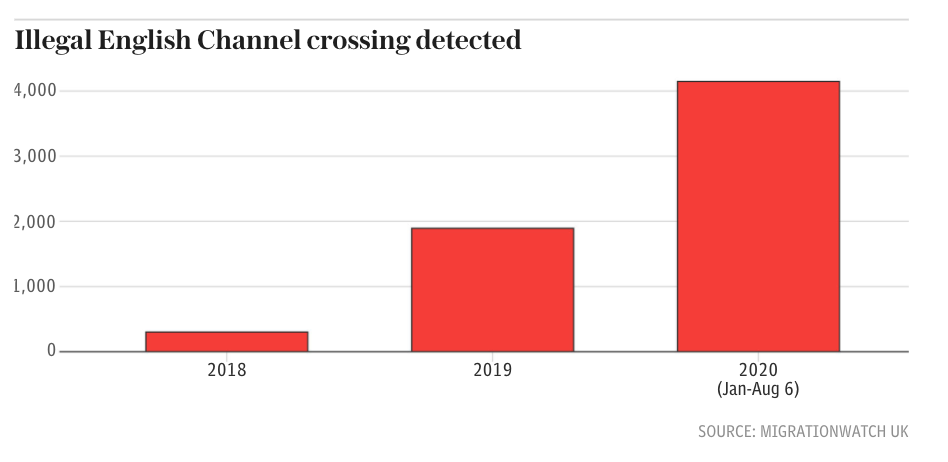 h/t The Daily Telegraph
h/t The Daily TelegraphThe Ministry of Defence (MoD) spokesperson was quoted by The Daily Telegraph as saying:
Watchkeeper UAV is capable of carrying a range of sensors for day and night missions; radars will help it detect vessels on the surface of the water as the country must beef up its surveillance and reconnaissance capabilities in the channel due to an eruption in migrant inflows over the last two years."The deployment of Watchkeeper provides further defense support to the Home Office in tackling the increasing number of small boats crossing the English Channel.
"It will provide a leading surveillance and reconnaissance capability, feeding information back to the Border Force and allowing them to take appropriate action where necessary," MoD said.
The waters between France and England are becoming Europe's next watery graveyard for refugees, many of whom are packed into small vessels, at risk of capsizing in the rough waters of the channel. These folks are from war-torn countries such as Sudan, Yemen, Palestine, Iran, Kuwait, Egypt, Chad, Mali, and Iraq, seeking a better life in Europe.
The deployment of the drone appears to be the UK government attempting to strengthen border measures as the migrant crisis continues to affect Southern Europe.
northern watch
TB Fanatic
Plain Jane
Just Plain Jane

France’s Charlie Hebdo republishes Mohammed cartoons at start of terror trial
French satirical weekly Charlie Hebdo, the target of a massacre by Islamist gunmen in 2015, republished on Wednesday hugely controversial cartoons of the Prophet Mohammed to mark the start of the trial…
France’s Charlie Hebdo republishes Mohammed cartoons at start of terror trial
5Kshares
Issued on: 01/09/2020 - 13:15

This picture taken on September 1, 2020 in Paris shows covers of French satirical weekly Charlie Hebdo reading "All of this, just for that," to be published on September 2 to mark this week's start of the trial for 14 accused in January 2015 jihadist attacks in Paris. AFP - -
Text by:FRANCE 24Follow
|
Video by:FRANCE 24Follow
8 min
French satirical weekly Charlie Hebdo, the target of a massacre by Islamist gunmen in 2015, republished on Wednesday hugely controversial cartoons of the Prophet Mohammed to mark the start of the trial of alleged accomplices to the attack.
"We will never lie down. We will never give up," director Laurent "Riss" Sourisseau wrote in an editorial to go with the cartoons in the latest edition.
"The hatred that struck us is still there and, since 2015, it has taken the time to mutate, to change its appearance, to go unnoticed and to quietly continue its ruthless crusade," he said.
Twelve people, including some of France's most celebrated cartoonists, were killed on January 7, 2015, when brothers Said and Cherif Kouachi went on a gun rampage at the paper's offices in Paris.
The perpetrators were killed in the wake of the massacre but 14 alleged accomplices in the attacks, which also targeted a Jewish supermarket, will go on trial in Paris on Wednesday.
The latest Charlie Hebdo cover shows a dozen cartoons first published by the Danish daily Jyllands-Posten in 2005 – and then reprinted by the French weekly in 2006, unleashing a storm of anger across the Muslim world.
In the centre of the cover is a cartoon of the prophet drawn by cartoonist Jean Cabut, known as Cabu, who lost his life in the massacre.
"All of this, just for that," the front-page headline says.
'The right to blaspheme'
The editorial team wrote that now was the right time to republish the cartoons and that it was "essential" as the trial opens.
"We have often been asked since January 2015 to print other caricatures of Mohammed," it said.
"We have always refused to do so, not because it is prohibited – the law allows us to do so – but because there was a need for a good reason to do it, a reason which has meaning and which brings something to the debate."
The paper's willingness to cause offence over a range of controversial issues has made it a champion of free speech for many in France, while others argue it has crossed a line too often.
But the massacre united the country in grief, with the slogan #JeSuisCharlie (I Am Charlie) going viral.
French President Emmanuel Macron said on Tuesday it was not his place to pass judgment on the decision by Charlie Hebdo to republish the cartoons, saying France has freedom of expression.
But Macron, speaking on a visit to Lebanon, said it was incumbent on French citizens to show civility and respect for each other, and avoid a "dialogue of hate".
"A thousand bravos," Zineb El Rhazoui, a former journalist for the weekly, said on Twitter, calling the republication of the cartoons a victory "for the right to blasphemy".
The former director of Charlie Hebdo, Philippe Val, also hailed a "remarkable idea" for defending freedom of thought and expression in the face of "terror".
In a nuanced response, the president of the French Council of Muslim Worship (CFCM), Mohammed Moussaoui, urged people to "ignore" the cartoons, while condemning violence.
"The freedom to caricature is guaranteed for all, the freedom to love or not to love (the caricatures) as well. Nothing can justify violence," he told AFP.
The suspects, who go on trial from 0800 GMT on Wednesday, are accused of providing various degrees of logistical support to the killers.
The trial had been delayed several months with most French courtrooms closed over the coronavirus epidemic.
The court in Paris will sit until November 10 and, in a first for a terror trial, proceedings will be filmed for archival purposes given public interest.
Take international news everywhere with you! Download the France 24 app
National anti-terror prosecutor Jean-Francois Ricard dismissed the idea that it was just "little helpers" going on trial since the three gunmen were now dead.
"It is about individuals who are involved in the logistics, the preparation of the events, who provided means of financing, operational material, weapons, a residence," he told France Info radio on Monday.
"All this is essential to the terrorist action."
(FRANCE 24 with AFP)
Plain Jane
Just Plain Jane

North Macedonia Arrests Three Terrorism Suspects, Seizes Explosives
North Macedonian arrested three alleged Islamic State sympathisers and returnees from Middle East conflict zones, and seized a cache of explosives and weapons that they are suspected of having planned to use for attacks.
North Macedonia Arrests Three Terrorism Suspects, Seizes Explosives
Sinisa Jakov Marusic
Skopje
BIRN
September 1, 202017:09
North Macedonian arrested three alleged Islamic State sympathisers and returnees from Middle East conflict zones, and seized a cache of explosives and weapons that they are suspected of having planned to use for attacks.

North Macedonia special police officer. Archive photo: MVR
The Interior Ministry announced on Tuesday that three people, Macedonian nationals from the north-eastern town of Kumanovo, were arrested in an anti-terrorist operation carried out by the police the previous day in cooperation with the National Security Agency and the Public Prosecutor’s Office for Organised Crime.
“B.A., V.A. and E.Lj. are recidivists, ie. returnees, persons who have previously committed the crime of participation in a foreign army, police force, paramilitary or para-police group,” the Interior Ministry said in a statement.
It added that the three suspects have already served prison sentences in North Macedonia for their previous crimes.
During the operation to arrest them, the police found various firearms, ammunition and hand grenades, as well as explosives, tactical vests and other equipment, plus a flag with Arab letters on it.
The weapons cache was found near a local road close to the village of Biljanovce, near Kumanovo.
The head of North Macedonia’s National Security Agency, Viktor Dimovski, briefed reporters on Tuesday that the initial information is that the weapons and explosives found during the raid were planned to be used for terrorist attacks on institutions in the country.
The prosecution said that it has already ordered forensic analyses of the seized weapons and equipment and that the suspects will be brought before a judge to rule on the prosecution’s request for a custody remand.
According to North Macedonia’s National Coordinative Body for Prevention of Violent Extremism and Fight Against Terrorism, the country has so far identified over 150 people who participated in fighting in Iraq and Syria. A total of 35 of them are believed to have died there.
Many of the others have since returned to their home country and some have been jailed.
The most prominent case, codenamed ‘Cell’, in which 11 people were sent to jail in 2016, concerned a group found guilty of recruiting people to fight in Iraq and Syria and of participating in foreign paramilitary forces.
Plain Jane
Just Plain Jane

Merkel says Navalny poisoning was attempted murder – DW – 09/02/2020
German Chancellor Merkel called the Navalny case "attempted murder with a nerve agent" adding that she expected Moscow to explain its position. The Kremlin said Moscow was "not inclined to accept any accusations."
Merkel says Novichok poisoning of Russia’s Navalny was attempted murder
German Chancellor Merkel called the Navalny case "attempted murder with a nerve agent" adding that she expected Moscow to explain its position. Navalny was flown to Berlin for treatment after falling ill in Russia.
Watch video02:06
Germany: Alexei Navalny poisoned with nerve agent
Angela Merkel said there was "shocking information" that showed "beyond a doubt" that the poisoning of Alexei Navalny was "an attempted murder with nerve agent" after a toxicology test in Germany showed that the opposition leader had been targeted with Novichok.
Merkel said Navalny was "the victim of a crime intended to silence him." She said the gravity of that fact made it important for her to "take a clear stance."
The chancellor said the case raises "very serious questions that only the Russian government can answer — and must answer," adding, "the world will wait for an answer."
Berlin slams attack 'in strongest possible terms'
Previously, a government spokesman said that the test showed conclusive evidence that the Russian opposition leader had been poisoned with the nerve agent Novichok.
The test was conducted in a special German military lab, according to the government spokesman Steffen Seibert.
Watch video00:29
Maas: 'We condemn this attack in the strongest terms'
Seibert said Merkel and her Cabinet had met to discuss the situation and determine a course of action. In a tweet announcing the findings, Seibert wrote, "The German federal government condemns this attack in the strongest possible terms."
The German government expected a swift and full explanation from Russia, according to the spokesman, who also added that Foreign Minister Heiko Maas had summoned the Russian ambassador to discuss the situation.

Russian opposition leader Alexei Navalny was flown to Berlin, where he remains in critical condition at the Charite Hospital
Read more: Russia asks Germany for help with Alexei Navalny case
Berlin will now confer with its EU and NATO partners to discuss an appropriate reaction to the incident, as well as notifying the Organization for the Prohibition of Chemical Weapons (OPCW) as to the findings. Calling for a united diplomatic reaction in her statement, Merkel said, "The crime against Alexei Navalny was aimed at the fundamental values and rights for which we stand."
Diplomatic battle over Navalny
Navalny is a known critic of Russian President Vladimir Putin. The opposition leader and his allies claimed Navalny had been poisoned once before while in a detention cell in Moscow last year. He was also attacked in public. The nerve agent Novichok is the same toxin that was used in the 2018 poisoning of former double agent Sergei Skripal in Salisbury, England.
Navalny fell ill during a flight from Siberia to Moscow on August 20, after which his plane made an emergency landing in the Siberian city of Omsk and he was rushed to a local hospital where he went into coma. Two days later, after much diplomatic wrangling, Russian doctors allowed the opposition leader to be flown to Berlin, where he was treated at the city’s Charite Hospital.
He remains in a medically induced coma and on a ventilator in the Charite as of Wednesday afternoon. Doctors there say that his condition is critical though his life is no longer in danger.
Watch video06:00
Germany calls for Navalny poisoning probe
Plain Jane
Just Plain Jane
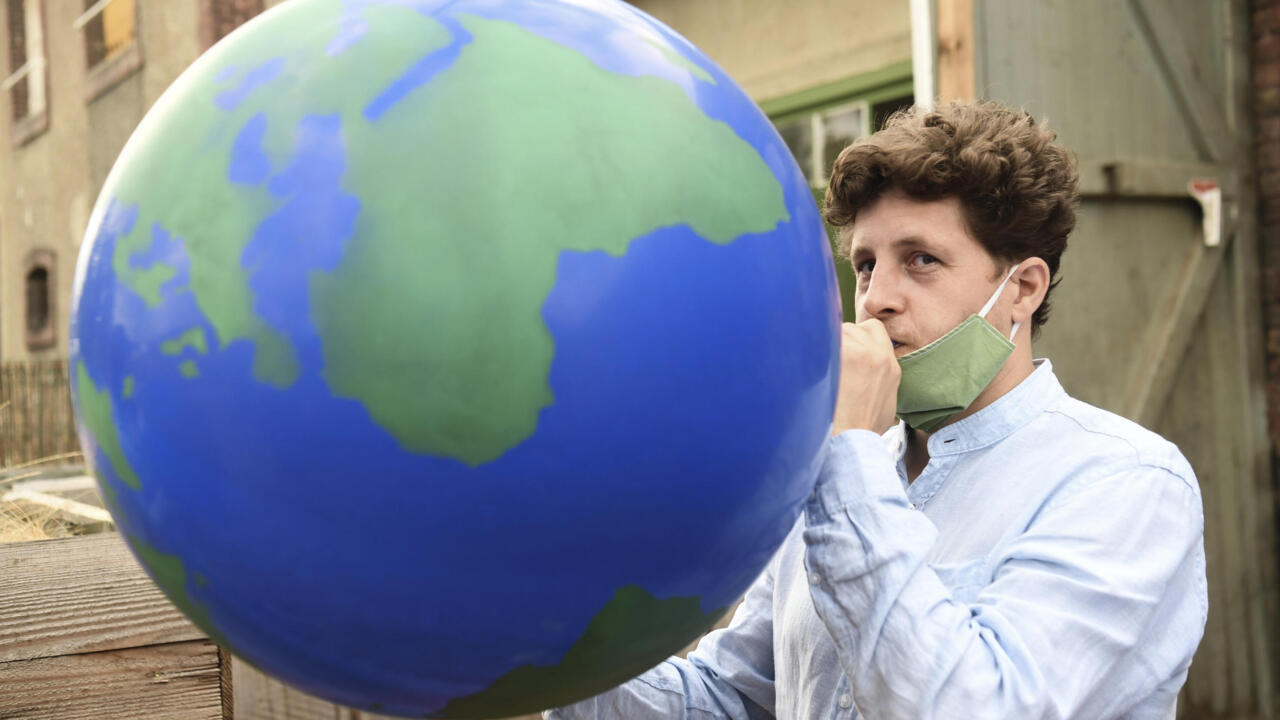
Can France’s Greens unite the left and avert a Macron-Le Pen rematch?
President Emmanuel Macron’s drift to the centre-right of France’s political spectrum has opened up a sea of opportunity for the country’s fractured and rudderless left – a space the Greens, long a byword…
Can France’s Greens unite the left and avert a Macron-Le Pen rematch?
90shares
Issued on: 29/08/2020 - 11:16

A Green Wave or just a lot of hot air? Party chief Julien Bayou inflates a balloon at the Greens' end-of-summer gathering in Pantin, north of Paris. © Alain Jocard, AFP
Text by:Benjamin DODMANFollow
8 min
President Emmanuel Macron’s drift to the centre-right of France’s political spectrum has opened up a sea of opportunity for the country’s fractured and rudderless left – a space the Greens, long a byword for factionalism and division, are hoping to span and unite.
It’s “journées d’été” season in France, the late-summer bustle when political parties hold their first pow-wows since the holiday break – a chance to count their numbers, talk policy and set goals for the year ahead. Above all, it’s a time when freshly tanned politicians strut their stuff before the cameras and give away their thinly veiled ambitions, on the lookout for much-needed notoriety and publicity.
After years of oblivion, France’s fragmented left is once again in the news, buoyed by its recent electoral successes in municipal elections. But the landscape has changed dramatically since the days when the Socialist “journées d’été” set the tempo and satellite parties danced to the tune. This time, the ball is in the Green camp, long derided as a chronically divided amateur outfit that is ill-equipped for the challenges of France’s Fifth Republic.
‘Green Wave’
After years of playing junior partner in coalitions dominated by the Socialists, France’s resurgent ecologists rode a so-called “Green Wave” of successes on June 28, conquering a string of major cities that included strongholds of the right.
Backed by an array of local left-wing coalitions, Green candidates notched up victories in the likes of Marseille, Lyon, Strasbourg and Bordeaux – a conservative bastion for 73 years. Humiliatingly for Macron, they did so by defeating centre-right coalitions that included his ruling LREM party, reduced to the role of auxiliary of the right.
Galvanised by these successes, members of Europe Écologie-Les Verts (EELV), commonly known as the Greens, gathered in the northern Paris suburb of Pantin last weekend to discuss their next objectives. They agreed that uniting the left was of the essence, but that their ideas and platform must necessarily be at the heart of the process.
Along with climate change and ecology, discussions centred on societal issues such as women’s rights, racial discrimination and police violence. On the economic front, the focus was on relocating national production amid the coronavirus pandemic.
The idea was to build a “clear, coherent and bold programme” rather than focusing on “alliances between parties”, said EELV leader Julien Bayou, with the ultimate goal of “averting another second round between Macron and [Marine] Le Pen”.
Le Pen vs ?
With the all-important presidential election less than two years away, all parties know they are fast running out of time to avoid a repeat of the 2017 presidential run-off that saw Macron defeat the far right’s Le Pen. While Macron, who was elected on a centrist platform, is deeply unpopular, particularly on the left, his rivals are yet to produce credible challengers. And though she is detested by a majority of the French, Le Pen can count on a rock-solid support base.
That support base, in which France’s four-million-plus unemployed feature prominently, is destined to grow even further as the recession caused by the Covid-19 pandemic takes its toll on the French economy, according to political analyst Thomas Guénolé.
“In this respect, the only real question is who will take on Le Pen,” Guénolé said in an interview with FRANCE 24, suggesting that the incumbent president’s qualification for the second round is not a foregone conclusion.
“Macron’s strategy is to poach more voters from the right, while relying on fear of Le Pen to guarantee him a measure of support on the left,” he explained. The ploy worked three years ago, he added, but it could backfire the second time if – and it’s a big if – the left picks a different champion to take on the far right.
Backing the wrong horse
Back in 2017, with the once-dominant Socialists in full meltdown, the left-wing vote was split between Macron and leftist firebrand Jean-Luc Mélenchon. But with both now severely weakened, Guénolé said “a huge space has opened up for a social-democractic candidate to emerge in between". Uniting that space will be difficult, he added, but not impossible.
According to the political analyst, there are three possible scenarios for such a candidacy to emerge: a primary involving all or most left-wing parties; an individual surge in the manner of Macron’s 2017 bid; or a free-for-all race in which one candidate eventually becomes dominant and siphons votes from smaller left-wing tickets, as Mélenchon almost succeeded in doing three years ago.
The trouble for the Greens, he said, is that they currently look vulnerable in all three scenarios.
“Nobody in their ranks enjoys the notoriety required to vie for the presidency,” he said. “They are known only to pundits and the media.” Furthermore, he added, the Greens have a history of choosing the “wrong” ticket and picking nobodies over celebrities – “as though fame were something dirty”.
In 2002, Green party members ditched the largely popular Noël Mamère in favour of a leftist candidate whose bid floundered after he called for Corsican separatists with blood on their hands to be amnestied. Ten years later, they shunned environmental activist Nicolas Hulot, one of France’s most popular figures, in favour of an investigative judge with a distinctly lower profile and weaker appeal. And at the last election, they threw their lot in with an imploding Socialist Party headed for its worst-ever defeat.
Out of the cities
Perhaps mindful that time plays in favour of his rivals, Yannick Jadot, currently the Greens’ likeliest – or least unlikely – candidate, has called for a presidential nominee to be chosen “before January”, in order to have time to build the broadest possible coalition. But others, like Bayou, prefer to focus on intermediary elections, notably the forthcoming regional polls scheduled for March 2021, before moving on to the presidential contest.
“Every electoral step is important and will enable us to build environmental awareness and policies throughout France’s territory,” said the EELV secretary-general at the “journées d’été” in Pantin, well aware that the Greens remain a negligible force outside of the main cities.
In a sign of the party’s surging confidence, Bayou announced on Thursday that he would vie for the presidency of the Île-de-France region, which includes Paris and is by far the country’s most populous. Though currently governed by the right, Île-de-France was long a Socialist stronghold. Should a Green candidate lead a left-wing coalition there, it would cement the changing balance of power within the French left.
“The regional polls will be a crucial test for the Greens, a more reliable indicator of their actual strength than the municipal elections,” Daniel Boy, a political analyst at Sciences-Po Paris university, told FRANCE 24. “Should they win two or three regions, or even just Île-de-France, it would alter both their standing and their bargaining power.”
Too radical or not enough?
Until that happens, the very notion of a “Green Wave” needs to be qualified, according to Guénolé.
“The wave was not green, it was a victory of a united left,” he said, referring to the recent municipal elections. “There is still no tangible evidence that the growing awareness of environmental issues has actually translated into broad support for the Greens and their policies.”
Boy agrees that the Greens have emerged as “leaders by default”, largely as a result of the decline of other left-wing parties. But he is more nuanced regarding the divisive, self-destructive tag often pinned on the Greens.
“Of course they have their factions and divisions,” he said. “But which party doesn’t?” As for their allergy to leadership, he added, it will “fade away as they get accustomed to wielding power”.
Of greater concern are the policy divergences that are bound to become more apparent as the 2022 polls draw closer and national issues come to the fore.
“It’s one thing to unite the left on transport, the environment and other local prerogatives, but it’s an altogether different matter when you start discussing foreign policy, policing and immigration,” he said. “In that respect, much will depend on which candidate the Greens put forward and how forthcoming their partners will be.”
Take international news everywhere with you! Download the France 24 app
Olivier Faure, the current Socialist Party leader and a key advocate of a united left, has gone so far as to suggest his party may not field a candidate in 2022 – a stance many old-guard Socialists vehemently oppose. Should the Greens pick someone deemed too radical, like up-and-coming Grenoble mayor Éric Piolle, Faure may find it impossible to resist calls for a more moderate Socialist to join the race.
Likewise, a candidate with weaker left-wing credentials, like Jadot, would almost certainly face tough opposition from Mélenchon and others to his left – though Mélenchon is likely to throw his hat in the ring regardless of who the Greens chose.
Last weekend, Piolle made a highly noticed visit to the “journées d’été” of Mélenchon’s party, France Unbowed, which supported his successful bid for a second term in Grenoble… unlike the local Socialist candidate.
“The left is divided and for a good reason: Nobody can possibly encompass the full spectrum,” said Boy. “But it’s not too late for other figures to emerge, not with the level of exposure that a presidential campaign affords.”
Plain Jane
Just Plain Jane

Dutch populist Wilders acquitted of inciting discrimination
Dutch politician Geert Wilders was acquitted by an appeals court on Friday of discrimination, in a partial legal victory for the far-right populist who leads the opposition in parliament and who is known for his anti-Islam rhetoric.
NEWS
SEPTEMBER 3, 2020 / 8:11 PM / UPDATED AN HOUR AGO
Court to rule on Dutch populist Wilders' appeal of racial incitement conviction
Toby Sterling
3 MIN READ
AMSTERDAM (Reuters) - A Dutch appeals court will decide on Friday whether to overturn the racial incitement conviction of Geert Wilders, the far-right populist party chief who led supporters in chanting that they wanted fewer Moroccans in the Netherlands.
The trial of Wilders, one of Europe’s most prominent far-right leaders, has been seen as pitting the rights of freedom of speech against the right of ethnic and religious minorities not to suffer verbal abuse and discrimination.
Wilders, 56, whose Freedom Party has at times topped national opinion polls, argues he did nothing wrong, and merely expressed openly what many Dutch people think.
He was convicted in 2016 of inciting discrimination at a 2014 campaign rally, in which he led supporters in asking whether they wanted more or fewer Moroccans in the country.
“Fewer! Fewer! Fewer!” his supporters chanted. “We’re going to take care of that,” said the smiling Wilders.
Trial judges said Wilders had planned the remarks ahead of time knowing they would be inflammatory and insulting to the 400,000 people of Moroccan ancestry in the Netherlands.
They convicted him, saying that politicians are not “above the law”, but issued no fine or other penalty. Wilders appealed, seeking to clear the conviction from his name and saying his trial was politically motivated.
On appeal, prosecutors asked the court to convict Wilders on an additional charge of inciting hatred against Moroccans based on their race and impose a fine of 5,000 euros ($5,930), or 60 days in prison if it is unpaid.
The appeals court’s decision was expected around 1130 GMT.
Wilders said his words were a reference to his party’s platform, which included policies such as expelling Moroccans with dual nationality who commit a crime, and encouraging immigrants to leave.
With his trademark coif of bleach blond hair, Wilders was among the first of a wave of anti-immigration populists in Europe, and frequently shocked the Dutch political establishment and offended Muslims with his anti-Islam rhetoric.
He was acquitted in a 2011 hate speech trial for remarks likening Islam to Nazism and calling for a ban on the Koran.
Wilders has lived under constant police protection for more than a decade due to death threats.
Additional reporting by Anthony Deutsch; Editing by Mark Heinrich
Our Standards:The Thomson Reuters Trust Principles.
Plain Jane
Just Plain Jane

Anti-immigrant protesters scuffle with police in UK's Dover
LONDON (AP) — Far-right protesters clashed with police Saturday in the English port of Dover, where thousands of migrants have arrived in recent months after crossing the Channel in small boats. Dozens of anti-immigrant demonstrators, some wearing Union Jack face masks, blocked a main road...
Click to copy
Anti-immigrant protesters scuffle with police in UK’s Dover
yesterday

1 of 3
Anti-migrant protesters react with police, in Dover, England, Saturday, Sept. 5, 2020. Police controlled a small scale demonstration against immigration, calling for authorities to do more to protect English shores, at England's southern port city nearest to mainland Europe. (Stefan Rousseau/PAvia AP)
LONDON (AP) — Far-right protesters clashed with police Saturday in the English port of Dover, where thousands of migrants have arrived in recent months after crossing the Channel in small boats.
Dozens of anti-immigrant demonstrators, some wearing Union Jack face masks, blocked a main road, singing “Rule, Britannia!” as they marched in the middle of the road. The song has sparked debate over its celebration of the British Empire at a time when critics are reevaluating the nation’s colonial past.
Some protesters scuffled with police near the entrance to the town’s harbor. Police said nine people were arrested.
Anti-racism protesters held a rival demonstration in the town to say asylum-seekers were welcome.
On Friday night, the humanitarian charity Freedom from Torture beamed the words “Rise above fear. Refugees welcome” onto the White Cliffs of Dover overlooking the English Channel.
Migrants have long used northern France as a launching point to get to Britain, either in trucks through the Channel tunnel or on ferries.
Some have turned to small boats organized by people smugglers because coronavirus lockdowns have reduced opportunities to stow away on vehicles.
More than 5,000 migrants have crossed the Channel, one of the world’s busiest waterways, this year, most during the warm summer months.
Plain Jane
Just Plain Jane

UK ready for Australia-style rules if can't do EU trade deal: Raab
This week is the "moment of reckoning" in trade deal talks between Britain and the European Union and if one cannot be agreed London is ready to adopt less open trade terms with the bloc, UK Foreign Secretary Dominic Raab said.
NEWS
SEPTEMBER 6, 2020 / 4:53 AM / UPDATED 23 MINUTES AGO
UK ready for Australia-style rules if can't do EU trade deal: Raab
LONDON (Reuters) - This week is the “moment of reckoning” in trade deal talks between Britain and the European Union and if one cannot be agreed London is ready to adopt less open trade terms with the bloc, UK Foreign Secretary Dominic Raab said.
“All the UK is asking for is to be treated like any other country in free trade negotiations. No other country would accept being bound by or controlled by the EU’s rules,” he told Sky News on Sunday.
“There’s a good deal there for the EU, we’d love to do that free-trade agreement and if not we’ll fall back on Australian-style rules.”
Reporting by Paul Sandle
Our Standards:The Thomson Reuters Trust Principles.
Plain Jane
Just Plain Jane

One dead, several injured in Birmingham stabbings, UK police say
A man was killed and seven people injured in late-night stabbings in a busy nightlife area of the central England city of Birmingham, police said Sunday.
Several people injured in Birmingham stabbings, UK police say
Issued on: 06/09/2020 - 09:23

File photo of a police officer standing by a security cordon in Birmingham, United Kingdom. © Paul Ellis, AFP
Text by:NEWS WIRES
2 min
Police in the English city of Birmingham declared a "major incident" after reports that a number of people were injured in stabbings early on Sunday.
"We can confirm that at approximately 12:30am today we were called to reports of a stabbing in Birmingham city centre," West Midlands Police said in a statement. "A number of other stabbings were reported in the area shortly after.
"We are aware of a number of injured people, but at the moment we are not in a position to say how many or how serious."
Emergency services were working together at the scene to ensure that those who were injured were receiving medical care, the statement said.
Cordons were in place and there were some road closures in the city.
The BBC said the cordon was near the area known as the Gay Village in the centre of Birmingham, where many people had been seated at outdoor tables eating and drinking.
"At this early stage it would not be appropriate to speculate on the causes of the incident," the police said.
(REUTERS)

One dead, several injured in Birmingham stabbings, UK police say
A man was killed and seven people injured in late-night stabbings in a busy nightlife area of the central England city of Birmingham, police said Sunday.www.france24.com
Several people injured in Birmingham stabbings, UK police say
Issued on: 06/09/2020 - 09:23

File photo of a police officer standing by a security cordon in Birmingham, United Kingdom. © Paul Ellis, AFP
Text by:NEWS WIRES
2 min
Police in the English city of Birmingham declared a "major incident" after reports that a number of people were injured in stabbings early on Sunday.
"We can confirm that at approximately 12:30am today we were called to reports of a stabbing in Birmingham city centre," West Midlands Police said in a statement. "A number of other stabbings were reported in the area shortly after.
"We are aware of a number of injured people, but at the moment we are not in a position to say how many or how serious."
Emergency services were working together at the scene to ensure that those who were injured were receiving medical care, the statement said.
Cordons were in place and there were some road closures in the city.
The BBC said the cordon was near the area known as the Gay Village in the centre of Birmingham, where many people had been seated at outdoor tables eating and drinking.
"At this early stage it would not be appropriate to speculate on the causes of the incident," the police said.
(REUTERS)
"The Religion of Peace" strikes again... No other religion or faith can so get away with terrorism, and remain unbesmirched, as Islam... How far the West has fallen, prey to it's own views of "normalcy."
Blessed Be,
OldArcher, Witch
Plain Jane
Just Plain Jane
Zerohedge
ZeroHedge - On a long enough timeline, the survival rate for everyone drops to zero
Lengthy, posted in two parts.
No-Go-Zones: A Guide To Western Failed States & European Secessionist Movements

by Tyler Durden
Sun, 09/06/2020 - 08:10
TwitterFacebookRedditEmailPrint
Authored by Sam Jacobs via Ammo.com,
The failed state is to post-modernity what the nation-state was to modernity. It’s a recent development that is a hallmark of our age – like a state, but incapable of exercising sovereignty over all of its nominal territory. And while it might sound a little far-fetched, the failed state isn’t just coming to the West. It might already be here.
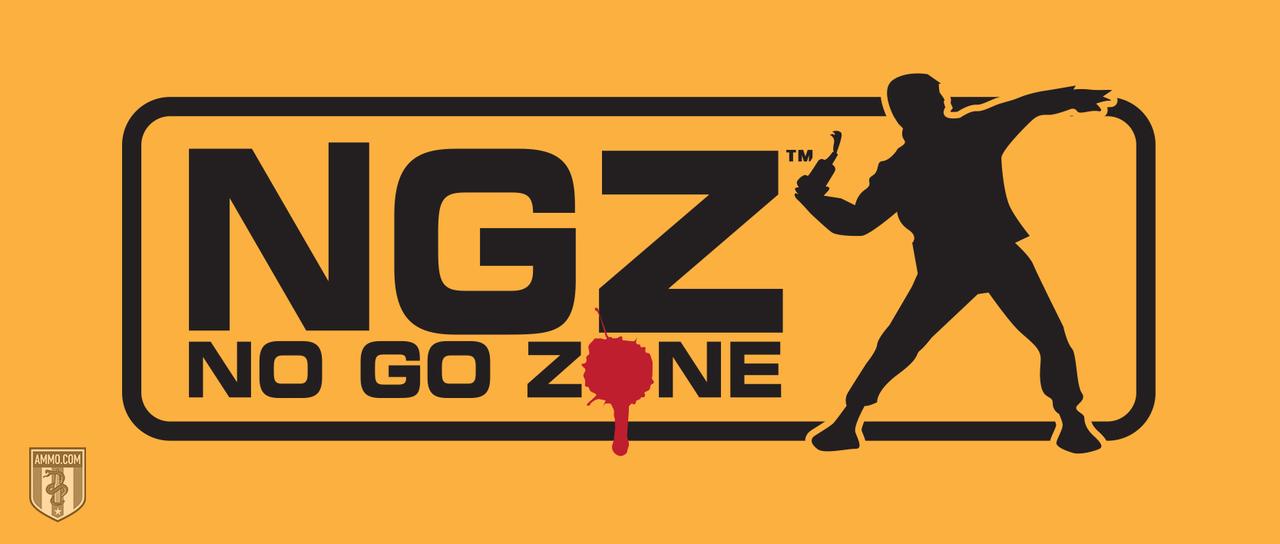
What Is a Failed State?
A failed state is a state no longer exercising effective control over the whole of its nominal territory. This can take a number of forms in practice, such as:
- A de facto separatist nation or nations existing within the boundaries of their de jure territory, competing for the monopoly on legitimate use of physical force.
- Failure of the legitimate authority of the nation to make practical, collective decisions.
- Inability to adequately provide basic social services such as policing, firefighting or emergency medical services to some or all of its territory.
- Inability to connect with other states through diplomatic channels; a lack of participation in the international community.
- A central government incapable of collecting enough tax revenue to operate effectively.
Who Decides If a State Is “Failed?”
You and anyone else can have an opinion on whether or not a state is failed. Politicians have less leeway, as calling a state “failed” can result in serious geopolitical consequences. As a result, most politicians would be hesitant to describe any state as “failed.”
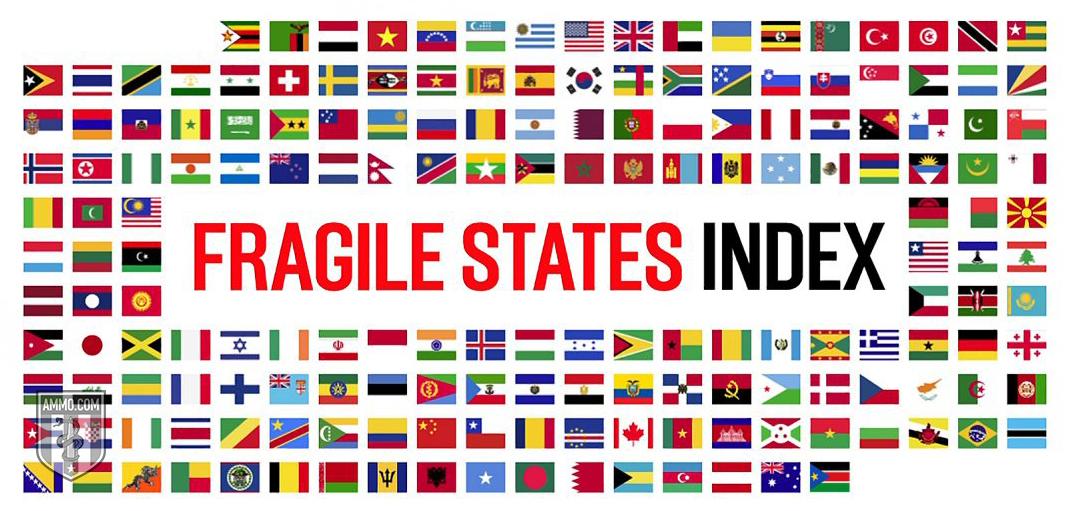
The “Fragile States Index” (FSI) is calculated by the U.S.-based think tank Fund for Peace. They use a number of objective and subjective factors to determine whether or not a state is failed (or “fragile” as they call it) by scanning media for indicators of social, economic and political failure or fragility in a country.
Among the top-ten most fragile states include: South Sudan, Somalia, Yemen, Afghanistan, and Zimbabwe. Haiti is the first representative from the Western Hemisphere at number 12. The next appearance in the Americas is Venezuela at 46, followed by Colombia at 71. Of the 10 most stable countries, eight are in Europe (Finland, Norway and Switzerland get the gold, silver and bronze respectively) and two are in Oceania (unsurprisingly, Australia and New Zealand). The most stable non-Western country is Singapore at 161, followed by Japan at 158 and Mauritius at 151.
The FSI does not hold a monopoly on deciding what nations are and are not “failed.” It is, however, the only major organization ranking countries.
Most people under 40 were probably introduced to the concept of a “failed state” by Somalia, after the collapse of its dictatorship in the early 1990s. This led to an extended American adventure in Somalia, resulting in the events described in Black Hawk Down: A Story of Modern War. Not only were American lives lost, but so was a significant amount of American prestige, as Washington neocons got their first bitter taste of “nation-building” in a nation which didn’t want to be built. The central government collapsed and nothing effectively replaced it.
To this day, some organizations operating within Somalia claim to be the ruling authority. Others claim to be separate, but completely legitimate nations. And those who must do business in Somali waters arm themselves via floating barges filled with guns and ammunition to fight off pirates.
Are Failed States Coming to Europe?
As with most things, the answer to this question depends on how we define “failed state.” For example, the presence of terrorism within a state doesn’t necessarily make it a failure, but rampant terrorism is a signature feature of a failed state. No one would suggest that the 9/11 attacks on America make it a failed state. However, the constant terrorist attacks against the Afghan state might be an argument in favor of Afghanistan as a failed state.
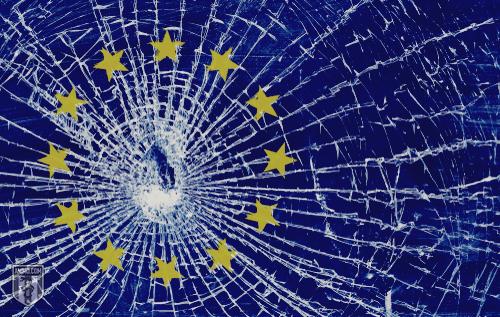
A more useful concept in terms of understanding whether or not failed states are coming to Europe is the so-called “No Go Zone.” United States President Donald Trump made headlines when he suggested that Sweden was on the verge of civil war or collapse. The press quickly lambasted him. How could this possibly be true of a country ranking in the top ten most stable countries in the world?
There are two answers to this question: First, the Fragile States Index measures how failed a state is, not how likely it is to become a failed state in the near future. Second, the manner by which Sweden might become a failed state could be something completely novel – and why wouldn’t it be, as Sweden would be the first failed state in Western Europe?
Yugoslavia might be the model for this. Remember, Yugoslavia was a stable nation until it wasn’t. It then turned into a bloodbath that defined a generation. While it’s tempting to blame this on Communist rule, nowhere else in Europe has there been similar levels of bloodshed. Other multinational Communist states such as Czechoslovakia and the Soviet Union broke apart with very little fuss and almost no spilled blood.
What Are European Secessionist Movements?
A little-known story about 21st-century Europe is that it’s filled with secessionist movements. Catalonia, a region currently part of Spain, made headlines when it voted overwhelmingly to declare independence.
In fact, there are dozens of secessionist movements in Western Europe operating at any given time. Some are more serious than others. For example, Catalonia voted decisively to leave Spain, which led to a constitutional crisis. Scotland came pretty close to voting to leave the United Kingdom. Some other active secessionist movements in Western Europe include:
- Belgium: It’s been joked that Belgium is made up of six million Walloons, three million Flemish and one Belgian – the monarch. The country is largely an artificial marriage between a Dutch and French population, with little in the way of shared cultural heritage that was engineered by the British due to its strategic location.
- France: France is filled with secessionist movements, many of which it shares with Spain, due to their proximity and shared history. The Basque Country, French Catalonia and the Celtic region of Brittany all have thriving independence movements. So does the Southern Occitan region, the island of Corsica and the formerly Italian territory of Savoy.
- Germany: Even stable, sensible Germany has a secessionist movement. The southern, conservative and Catholic region of Bavaria has never comfortably fit into the nation of Germany. Indeed, prior to the formation of a unified Germany, Bavaria was closer to Austria. After World War I, several proposals were made to create a nation out of Austria and Bavaria. A number of other movements seek autonomy for regions within Germany.
- Italy: Much like Germany, Italy was not a unified nation until relatively late in modern European history. And, much like France, it’s never quite integrated all of its parts into a whole. Venice, South Tyrol, Sicily, Sardinia, Northern Italy (known as “Padania”), Southern Italy (known as “Ausonia”) and Lombardy are just some of the regions of Italy with active secessionist movements. Of these, Northern Italy’s is the most robust. The Lega Nord (League of the North) is in a ruling coalition with the Five Star Movement.
- Spain: The Catalonian independence is the most famous, but not the only independence movement in Spain. There’s the Basques, Andalusia, Aragon, Asturias, Castille, Galicia, Leon, Navarre and Valencia. Spain is comprised of autonomous regions, nearly all of which were once independent kingdoms. Virtually all of them have independence movements of varying relevance and strength.
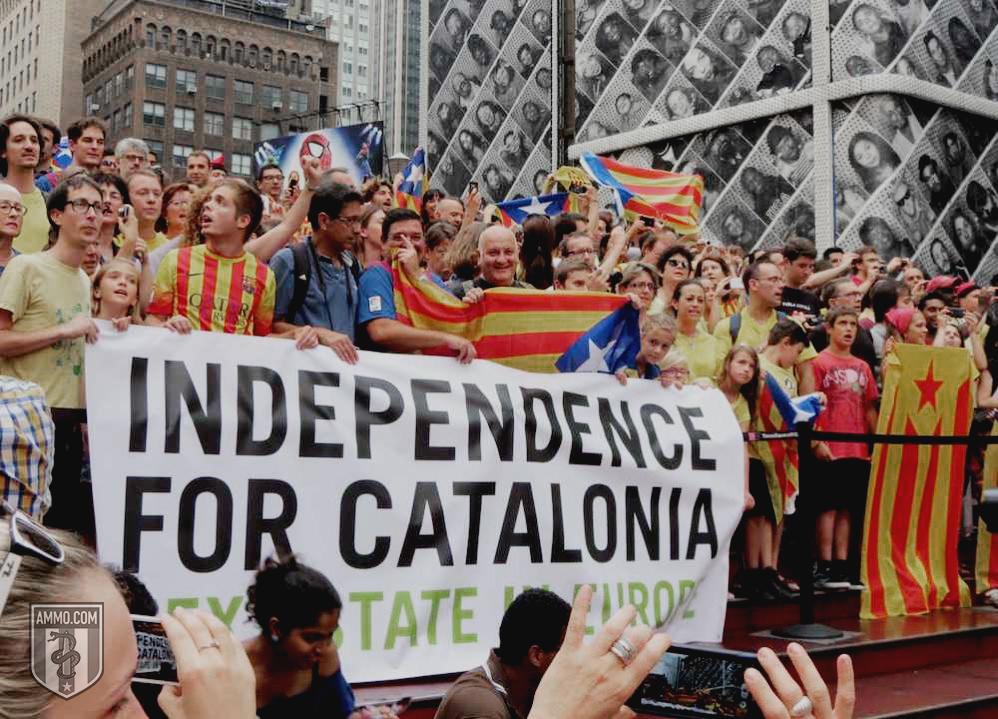
- Switzerland: Despite being a federation of largely autonomous cantons, Switzerland has secessionist movements in at least two: Jura (a French-speaking canton) and Ticino (an Italian-speaking canton).
- United Kingdom: The United Kingdom has seen an uptick in secessionist movements since the Scottish independence movement gathered steam. Of course there’s also an independence movement for Wales and even Ulster. No, we don’t mean Irish in Ulster who want to be reunified. The Ulster independence is an ultra-British movement that sees London as having sold out Irish Protestants. Other independence movements in the UK include one for Cornwall, Shetland (which might seek union with Norway), Mercia, Yorkshire and – wait for it – England. Some in England resent that Scots can vote to decide policy in England, while the Scottish Parliament controls Scotland. This is known as the West Lothian question.
Plain Jane
Just Plain Jane
Part 2:
 www.zerohedge.com
www.zerohedge.com
What Are Irredentist Movements?
A similar phenomenon is irredentist movements in Europe. Irredentist movements seek to reunite external territories with their “home nation.” The most famous example in Western media is probably “Greater Serbia,” which was the goal of Serbian ultranationalists in the rump Yugoslavia during the Yugoslav wars.
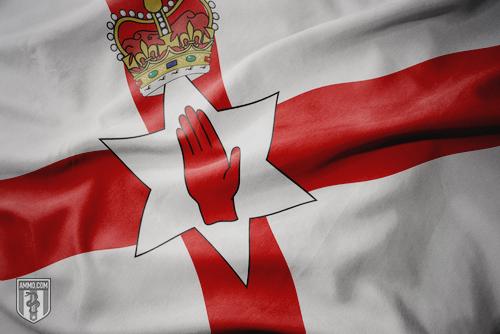
While these are more common in the Balkans than probably anywhere else in the world, Western Europe has no shortage of irredentist movements including:
What Is a No Go Zone?
A No Go Zone is sort of a failed state in miniature form, and is not that recent of a development. In the strictest sense, a No Go Zone (or ”No Go Area”) is an area that has been barricaded off by military or paramilitary authorities. However, a broader definition has emerged in recent years as governments such as France and Sweden use euphemisms such as “vulnerable area,” “exposed area” or “sensitive urban zone” for what are effectively No Go Zones.
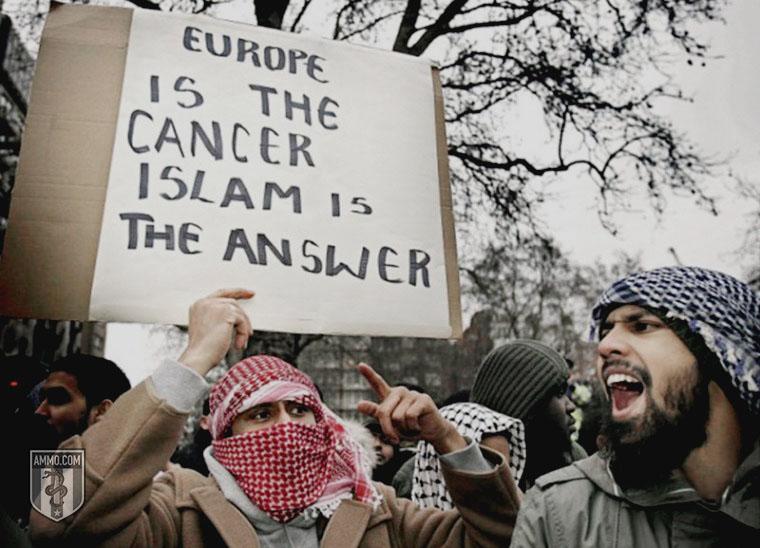
For our purposes, a No Go Zone is anywhere that the government is incapable of providing basic support services – policing, firefighting and emergency medical services. This is also the common meaning when “No Go Zone” is used in the media.
Uncomfortable for some to consider, it is an undeniable fact that most, if not all, of the No Go Zones in Europe coincide with large Muslim populations. In these areas, large radicalized immigrant populations are indifferent or hostile to the central government.
Beyond the merely uncomfortable for some and into the deeply disturbing for all, second-generation Muslim immigrants tend to be more radicalized than their parents, not less. This is true across Europe. Second-generation Muslim immigrants have been behind nearly every terrorist attack in Europe post-9/11. The kind of assimilation America saw after its massive immigration wave between the Civil War and the First World War simply is not happening with Muslim immigrant communities in Europe.
No Go Zones in Europe
Much of the debate around whether or not Europe has “No Go Zones” comes down to how terms are defined. A 2017 article on RT’s website put the matter very succinctly:

Here are some examples of growing civil unrest in Europe:
No Go Zones are not currently dominating political discourse in any European country. They are, however, forming a persistent backdrop in nearly every European nation. Populist-nationalist parties use them as a frequent talking point to pillory the establishment parties of both the left and the right. For their part, establishment political parties tend to deny the existence of No Go Zones entirely. To what degree No Go Zones are a factor in anyone’s vote is highly speculative.
In the middle of summer 2018, riots broke out in Sweden. Many on the left blamed the riots on the popularity of Sweden Democrats, an anti-immigration populist party. This only seemed to bolster their support among Swedes. Moderate Party MP Hanif Bali denied that this was the cause of the riots. Bali, the son of immigrants, is a staunch critic of Sweden’s immigration policies, showing that these criticisms are not limited to the Sweden Democrats. Bali is the only Swedish politician of note within the more mainstream parties to state that he is open to the possibility of a coalition with Sweden Democrats.
How Likely Are No Go Zones to Result in Failed States?
This is a difficult question to answer, because there’s no history of pockets of No Go Zones metastasizing into failed states in Western Europe.
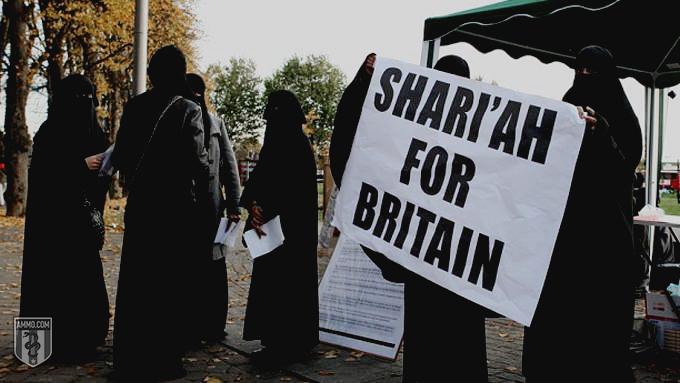
However, some Western European countries have hallmarks of incipient failed states, such as:
The short answer is by not living near any. The problem with being “prepared” for No Go Zones and failed states is that even the most prepared people in these areas lead somewhat desperate qualities of life. Even all the tactical weapons and gear in the world won’t make living in what’s effectively a war zone any prettier.
Still, the last 30 years of European history teaches us that No Go Zones and failed states can crop up anywhere. Preparation should be focused on having adequate ammunition, water, food and power in the event of a disruption of normal civil society. More than anything, what you need is not supplies, but an escape plan.
Zerohedge
ZeroHedge - On a long enough timeline, the survival rate for everyone drops to zero
What Are Irredentist Movements?
A similar phenomenon is irredentist movements in Europe. Irredentist movements seek to reunite external territories with their “home nation.” The most famous example in Western media is probably “Greater Serbia,” which was the goal of Serbian ultranationalists in the rump Yugoslavia during the Yugoslav wars.

While these are more common in the Balkans than probably anywhere else in the world, Western Europe has no shortage of irredentist movements including:
- South Tyrol: Mentioned above, South Tyrol is a part of Italy seeking either independence or union with Austria. Nationalists in Austria likewise seek to reclaim South Tyrol, which was part of Austria for centuries.
- Ireland: The government of Ireland, for its part, still claims that the six counties of Ireland that are a part of the United Kingdom are an occupied part of Ireland.
- Portugal: Portugal claims Olivenza, a Spanish border town, as part of an obscure dispute with Spain dating back to the Napoleonic era.
- Spain: Spain’s claim on Gibraltar, nominally British territory, is so strong that under the Franco regime “The Ballad of John and Yoko” was banned because of the line “Gibraltar near Spain.”
What Is a No Go Zone?
A No Go Zone is sort of a failed state in miniature form, and is not that recent of a development. In the strictest sense, a No Go Zone (or ”No Go Area”) is an area that has been barricaded off by military or paramilitary authorities. However, a broader definition has emerged in recent years as governments such as France and Sweden use euphemisms such as “vulnerable area,” “exposed area” or “sensitive urban zone” for what are effectively No Go Zones.

For our purposes, a No Go Zone is anywhere that the government is incapable of providing basic support services – policing, firefighting and emergency medical services. This is also the common meaning when “No Go Zone” is used in the media.
Uncomfortable for some to consider, it is an undeniable fact that most, if not all, of the No Go Zones in Europe coincide with large Muslim populations. In these areas, large radicalized immigrant populations are indifferent or hostile to the central government.
Beyond the merely uncomfortable for some and into the deeply disturbing for all, second-generation Muslim immigrants tend to be more radicalized than their parents, not less. This is true across Europe. Second-generation Muslim immigrants have been behind nearly every terrorist attack in Europe post-9/11. The kind of assimilation America saw after its massive immigration wave between the Civil War and the First World War simply is not happening with Muslim immigrant communities in Europe.
No Go Zones in Europe
Much of the debate around whether or not Europe has “No Go Zones” comes down to how terms are defined. A 2017 article on RT’s website put the matter very succinctly:
“Thus those looking to dismiss no-go areas as a ‘myth,’ can argue the semantics of what constitutes a ‘no-go zone,’ or how much of a threat they present, but not that term represents a real phenomenon.”

Here are some examples of growing civil unrest in Europe:
- Belgium: Following the November 2015 terror attacks in France, Belgium’s Home Affairs Minister Jan Jambon stated that the Belgian government does not “have control of the situation in Molenbeek.” He described this as a “gigantic problem” without actually using the term No Go Zone.
- France: Fox News created controversy in 2015 when they declared France had No Go Zones after the Charlie Hebdo shooting. However, looking beyond the hysteria, there’s considerable evidence that France has No Go Zones. In fact, Reuters referred to No Go Zones in Paris in October 2016. In June 2018, the French President Emmanuel Macron gave a speech with repeated euphemistic references to No Go Zones. The National Post, Canada’s paper of record, did an in-depth feature on No Go Zones in 2016. In 2017, an app launched called “No-Go Zone,” allowing the French to report lawless areas to be avoided. So while there may be a reflexive reaction to dismiss reports from Gatestone Institute or Breitbart on French No Go Zones as “right-wing propaganda,” there are no shortage of so-called “mainstream” sources reporting on No Go Zones in France.
- Germany: Angela Merkel has spoken about No Go Zones as a “reality” in Germany. In April 2018, the Daily Mail reported on a poll showing that a majority of Germans feared No Go Zones, with over three quarters stating they believed the government should crack down harder on organized crime.
- Sweden: Much of the media attention surrounding No Go Zones is centered on Sweden. Despite vehement denials, there is overwhelming evidence of No Go Areas in Sweden, no matter what term one chooses to use. An April 2018 Sputnik report described areas where emergency services cannot enter without significant police support. In 2018, the Prime Minister of Sweden referred to “parallel societies” in Sweden. The spectre of civil war in Sweden is openly discussed in Parliament. A 2017 RT article quoted Swedish National Police Commissioner Dan Eliasson as saying “we cannot continue in this direction ten more years.” In December 2017, the nation’s chief prosecutor described a Stockholm suburb as being like “a war zone” and stating that she would look to countries like El Salvador and Colombia for potential strategies.
- United Kingdom: President Donald Trump was ridiculed for suggesting the presence of No Go Areas in the UK, however, there is evidence to suggest he was correct. Raheem Kassam, a UKIP activist and former Breitbart UK Editor in Chief has written an entire book on the subject. Kassam is of Tanzanian extraction and was raised as an Ismaili Muslim, though he now identifies as an atheist. An anonymous London police officer went on popular British radio program LBC and stated that the British capital did in fact have “No Go Areas.” Councillors for Leeds suburb Bradford have similarly described areas of that city.
No Go Zones are not currently dominating political discourse in any European country. They are, however, forming a persistent backdrop in nearly every European nation. Populist-nationalist parties use them as a frequent talking point to pillory the establishment parties of both the left and the right. For their part, establishment political parties tend to deny the existence of No Go Zones entirely. To what degree No Go Zones are a factor in anyone’s vote is highly speculative.
In the middle of summer 2018, riots broke out in Sweden. Many on the left blamed the riots on the popularity of Sweden Democrats, an anti-immigration populist party. This only seemed to bolster their support among Swedes. Moderate Party MP Hanif Bali denied that this was the cause of the riots. Bali, the son of immigrants, is a staunch critic of Sweden’s immigration policies, showing that these criticisms are not limited to the Sweden Democrats. Bali is the only Swedish politician of note within the more mainstream parties to state that he is open to the possibility of a coalition with Sweden Democrats.
How Likely Are No Go Zones to Result in Failed States?
This is a difficult question to answer, because there’s no history of pockets of No Go Zones metastasizing into failed states in Western Europe.

However, some Western European countries have hallmarks of incipient failed states, such as:
- Ceding their monopoly on legitimate violence. Sharia courts, for example, operate with relative impunity in the UK.
- An unwillingness or inability to exercise sovereignty over its territory. The extended rioting in France and Sweden’s No Go Zones provide an example of this.
- Escalation of communal or tribal conflicts. As No Go Zones grow, it’s almost a given that communal conflicts will escalate.
- Guerilla conflict. Similarly, as No Go Zones grow, they may come to resemble completely autonomous areas and bases for terrorist attacks, such as the Moro areas of the Philippines.
- Finally, there’s the specter of democratic collapse in Western Europe. What will happen, for example, if the Sweden Democrats win a plurality in parliament, but cannot form a government and neither can any collection of their rivals? How about if sections of the military or security apparatus start taking sides?
The short answer is by not living near any. The problem with being “prepared” for No Go Zones and failed states is that even the most prepared people in these areas lead somewhat desperate qualities of life. Even all the tactical weapons and gear in the world won’t make living in what’s effectively a war zone any prettier.
Still, the last 30 years of European history teaches us that No Go Zones and failed states can crop up anywhere. Preparation should be focused on having adequate ammunition, water, food and power in the event of a disruption of normal civil society. More than anything, what you need is not supplies, but an escape plan.







